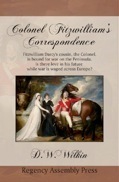D.W. Wilkin's Blog, page 355
January 8, 2012
Cavendish Square in the Regency and An Interview at English Epochs
History
The location of the lord or ladies home in London is always something I spend time over. And each time I then research the square I use or re-research it. I have used Cavendish Square a couple times.
The 2nd Earl of Oxford, in 1717 began to have it developed by John Prince.
Work stopped with the bursting of the South Sea bubble. (A great reason then in our fictitious regencies to replace the Harley family with our own Hero, perhaps)
The square saw the homes of the Duke of Portland, Duke of Chandos (not finished) the Princess Amelia (Daughter of George II) and other notables. In fiction, it is home to Dr. Jekylls best friend Dr. Lanyon. The 4th son of the Duke of Portland, Lord George Bentinck, MP for King's Lynn (And instrumental in the fall of Peel), was a resident during the later Regency Era.
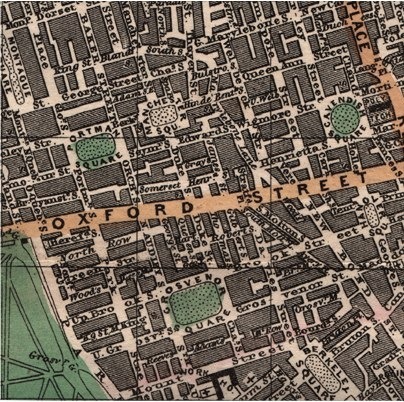
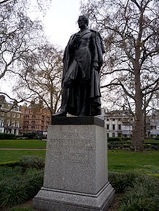
As a writer, setting up the writing environment is important. Trying to clear distractions so I can get what is in my brain to the paper as effortlessly as possible. That is the art, the craft is when we go back and look at it the second time, and then strip away our own prejudices and conceptions and allow others to comment. Before the internet it took actual physical contact to get others to read my work.
Now we have a plethora of avenues available to us. Through Goodreads I was in a group for writers, and they have gone on to provide an internet presence to discuss writing and help with critiquing works. It is On Fiction Writing and if you are interested please visit.
Interview/Giveaway
Once again I was interviewed for my work on Colonel Fitzwilliam's Correspondence.
It was at English Epochs 101 Please visit for a look. In an upcoming blog, I will excerpt my interview here. By looking there, however, you can search for the giveaway associated with the blog.








2011 Wrapup and
Later this week will be my normal posting cycle with a post on Regency History, and the tales of my life as a writer. Here though is what I started last year with my year end post.
Word Count
The word count for the year reached just over 1 million
Writing and where we are at, what I have accomplished:
Amount of writing, number of words, number of pages
Book Title
Words written in 2010
# of Pages
KoTohLan II-Hoveria
50,768
169
Lord Falmont's Muddle (A Regency Romance)
107,808
359
The Prize is not as Great as you Think
138,418
461
The Fastest Love (A Regency Romance)
98,206
327
A Trolling We Will Go
37,074
124
Trolling Down to Old Mah Wee
36,819
123
Trollings Pass and Present
41,754
139
Trolling Trolling
36,999
123
We'll All Go a Trolling
39,361
131
Lord and Key
104,885
350
Sci Fi Short 1
41,824
139
Genghis Khan Rules for (Warriors) Writers
33,748
112
Jane Austen and Ghosts
41,987
140
The Other Shoe (A Regency Romance)
108,076
360
Water Water Everywhere (ECO Agents 1)
78,681
262
Sci Fi Short 2
3,072
10
Total 1,002,213 3,339
Synopsis of the Books Written
KoTohLan II-Hoveria
This is part of a seven book series. The first was written in 2009. Here the idea is that the gods saw many years before our current events that the ruling dynasty they favored had those who would destroy it from within as well as without. They hid our hero with the aid of some influential people from those who took over. Now the hero is grown and finds he is the heir of the old dynasty. The empire of 7 kingdoms also has been crumbling. He is to visit each kingdom, one per book, and do heroic actions that bring the people behind him to reunite the broken empire. This book sees him forming an army in the southern most kingdom. It teaches him to be a general. A skill he will need to build and also gain the loyalty of men for the threats should only continue to grow in the following books.
Lord Falmont's Muddle
Our hero, Henry St. James Evermond, the Marquess of Falmont has two sisters that have been neglected by his father, that last Marquess. Now that he has the title, he knows that they both must be launched into society and takes them up to Town for the season. Here he finds that he too is affected by what happens when a young lady is presented around town during the season. Lord Falmont had no desire to become attached, but he could not deny that his heart was affected so.
The Prize is not as Great as you Think
This is a Ruritanian Romance. Europe right before the first World War. Here our hero is a cousin of the king, and when the crown prince is killed, he is thrust forward as the King's successor. That the king's bastard son is the man who ordered the assassination of his own brother, and now wants to kill our hero, provides mystery even as our hero wonders if he can find love or must settle for a diplomatic marriage to keep the great powers at bay.
The Fastest Love
Having invested in the first railway, our hero did not think he should be enamored of a woman who has come to the inaugural run of the train. Yet when such dramatic events happen that day, it may indeed be feted that they are meant to pursue a romance.
A Trolling We Will Go 
This is part of a five book series of short fantasy novels. It is the story of one man's determination to see that he does not die when the horrific Trolls invade his homeland, and what happens as he adapts.
Trolling Down to Old Mah Wee 
This is part of a five book series of short fantasy novels. It is the story of one man's determination to see that he does not die when the horrific Trolls invade his homeland, and what happens as he adapts.
Trollings Pass and Present 
This is part of a five book series of short fantasy novels. It is the story of one man's determination to see that he does not die when the horrific Trolls invade his homeland, and what happens as he adapts.
Trolling, Trolling, Trolling Fly Hides
This is part of a five book series of short fantasy novels. It is the story of one man's determination to see that he does not die when the horrific Trolls invade his homeland, and what happens as he adapts.
We'll All Go a Trolling
This is part of a five book series of short fantasy novels. It is the story of one man's determination to see that he does not die when the horrific Trolls invade his homeland, and what happens as he adapts.
Lord and Key
An Edwardian era book. Our hero recognizes that war is likely to come. He is an inventor, and the last man made a peer by Edward VII before the king dies. When faced with a family of ancient lineage int he town he builds his factory in, he clashes with the local lords daughter. A young lady who has been motivated by change herself as woman's sufferance is also on the rise.
Sci Fi Short 1
This is part of a five book short series of novels that deal with a galactic civil war. This book are part of the events our hero participates in as the galaxy heads down the road to the civil war.
Genghis Khan's Rules for (Warriors) Writers 
Having read enough dross, and written enough as well, putting a small selection of rules and criteria to follow that even Genghis Khan would consider appropriate occurred to me this year.
Jane Austen and Ghosts
There are a great many stories being written taken the beloved Austen's works and linking them with all sorts of monsters. It is only a matter of time before they are optioned and made into a movie. A movie that Jane may not want to see made. Something that compels her to return and see it done right.
The Other Shoe
This is a Regency, written for the 2011 NaNoWriMo. Here our hero, the heir to a Duchy fears our heroine is about to force herself on him after a moment's introduction. He gives her the cut direct which is seen by enough that it becomes an Ondit, which our Hero and Heroine then try to rectify only to cause them to have their names further linked together until they fall for one another. But the past embarrassments that society has placed upon them may cause them to avoid what their hearts yearn for.
Water Water Everywhere but Nary a Drop (ECO Agents)
The ECO Agent series is one suggested by my scientist brother Douglas. Here child prodigies destined to be scientists study at a university like school, but as they grow and develop as scientists they are taken to trouble spots around the globe. Their intuition and skills help solve the ills of Earth and they act a little like Comic Book heroes with a grounding in reality as they make discoveries. They are the ECO Agents.
Sci Fi Short 2
This is part of a five book short novel series. It explores a civil war in space. In this book the Unity of Man is broken and shooting starts between both sides.
Books sold in 2011 totals
501 Sales in 2011, up from 96 in 2010
The End of the World 21
The Shattered Mirror 20
Colonel Fitzwilliam's Correspondence 447
A Trolling We Will Go 5
Trolling Down to Old Mahwee 2
Trollings Pass and Present 1
Genghis Khan's Rules for (Warriors) Writers 6
Graphs


Books that were read (reviews can be found at David's Reading List) :
This year with the move, the upheaval in my life, 35 books read and reviewed.
1) The Eyes Have It by Randall Garrett 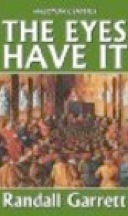
2) Little Fuzzy by H. Beam Piper 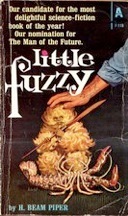
3) Caveat Emptor by Ruth Downie 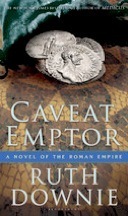
4) The Mad King by E.R. Burroughs 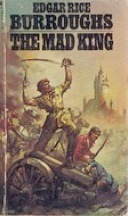
5) Treason's Shore by Sherwood Smith 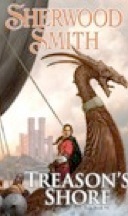
6) Facebook for Grown-Ups by Michael Miller 
7) I'm Feeling Lucky by Douglas Edwards 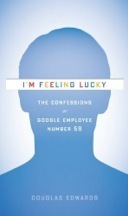
8) WordPress for Dummies by Lisa Sabin-Wilson 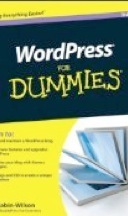
9) The Non-Designer's Web Book, 3rd Ed. by Robin Williams 
10) The Ruling Sea by Robert V.S. Redick 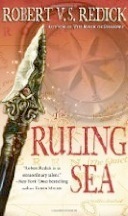
11) Edwardians by Peter Brimacombe 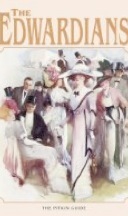
12) BuddyPress for Dummies by Lisa Sabin-Wilson 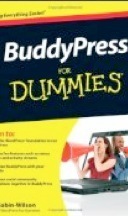
13) Head First HTML With CSS & XHTML by Elisabeth and Eric Freeman

14) The River of Shadows by Robert V.S. Redick 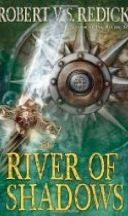
15) How to get a Literary Agent in Two Murders or Less by Ellie Burmeister
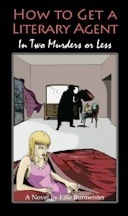
16) Georgette Heyer's Regency World by Jennifer Kloester 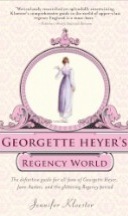
17) Roma by Steven Saylor 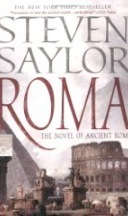
18) Raiders from the North by Alex Rutherford 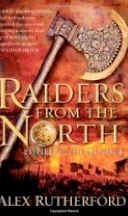
19) The Sorcerers and their Apprentices by Frank Moss 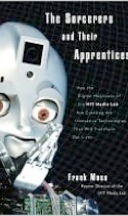
20) Captain Alatriste by Arturo Perez-Reverte 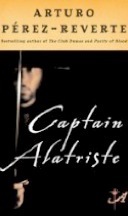
21) The Artist, the Philosopher and the Warrior by Paul Strathern 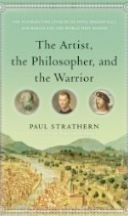
22) The Great A&P by Marc Levinson 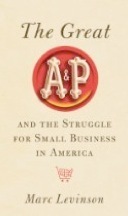
23)Common Courtesy by Judith Martin 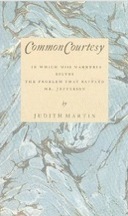
24)How to Write a Damn Good Novel by James Frey 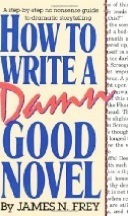
25) How to Write a Damn Good Novel II by James Frey 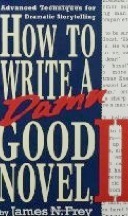
26) Through a Glass Deadly by Sarah Atwell 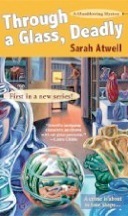
27) Fuzzy Nation by John Scalzi 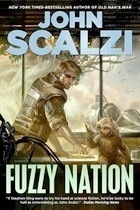
28) What Angels Fear by C.S. Harris 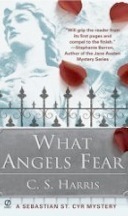
29) 1812 by David Nevin 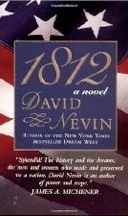
30) Uncharted the Fourth Labyrinth by Christopher Golden 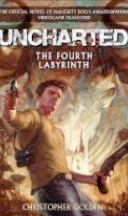
31) The Settlers of Catan by Rebecca Gable 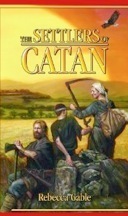
32) Centurion by Simon Scarrow 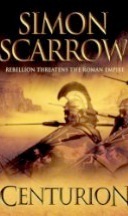
33) The Gladiator by Simon Scarrow 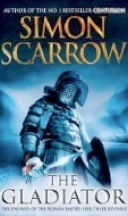
34)The Legion by Simon Scarrow 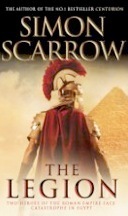
35) Pargeters by Norah Lofts 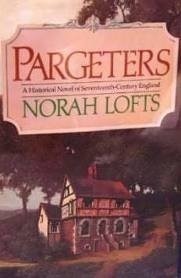








December 24, 2011
Almacks and Returning to the work force
Almacks
In keeping with our format of history first, I often find myself including one chapter, or part of a chapter of my regency romances at Almacks. It is thus important that we all know what Almacks was, for it is a center piece of not only Regency society, but of the raison d'être of all regency romances. It is the hub of the marriage market.
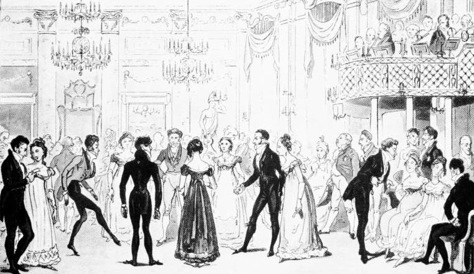
The concept of the marriage market is also what defines the social season. This is a concept that is still prevalent in our modern society. Parents want their children to marry well. They do not want to worry about them. By the time you are a parent with a marriageable child you remember what that passionate love was, but know that the companionship part of marriage, the comfort of marriage is as valuable, if not more valuable that that ardent feeling of love that consumes youth.
The Regency families of the Ton were no different than our sober parents who are urged to foot the bill for an extravagant wedding. (Champagne tastes and wants on beer budgeting means borrowing on your home equity to see junior or princess launched…)
Almacks is the center of this institution. At least it is so in our Regency Romance world. As has been pointed out before, now 200 years since the period, we glamorize what happened then. (Thank you all who love the works of Jane Austen. It has allowed us to clean up the view of the Regency since we take that love to the screen, which we very rarely see the seediness that existed in London and elsewhere.) The Regency Romance, and the formula I follow with our Hero and Heroine sealing their fate with a kiss at the last page of the story is just such a clean presentation of our period.
Almacks is the institution where we can have our heroes see in context all the opportunities for them to make a match with in a particular year. With my heroes something has compelled them forth in the year my story takes place for them to finally bite the bullet and wed. Often a fate that they have been avoiding.
For our Heroines we find that they too usually have an awareness that after their mamas or guardians have secured the crucial voucher, they must be more beautiful, more witty, more charming, then any other lady at the assembly rooms that night. They must banter over the orgeat, or ratafia and catch some great, rich lord's eye. Their needs to be a certain practicalness when placing Almacks in a chapter. Certainly one can go to have a night's entertainment there, but it is the Company Xmas party (Since it is Christmas Eve when I write this) You have to go. It is political. You have to be seen there. And you have to make an impression. Your co workers and the invited guests want to see you in a quasi state of being relaxed, but you are still acting restrained.
I bring to this accent of what Almacks was, my own quest for a bride, for I looked for mine at historical reenactment balls. (And found Cheryl there as well) Thus when I have my Heroines waiting to be approached by the Hero, or outline a dance, I bring to that my experiences from when that was my life.
Almacks opened well before the Regency in 1765. William Macall also opened a coffee house which became Brooks gentleman's club. Sometime after 1800 the Almacks as we use it in our Regencies emerged from its beginnings which was more of a gambling club that woman could go to as other avenues were quite notorious.
By the Regency and while the War was occurring their were six of seven patronesses who were responsible for issuing vouchers which allowed entry to the festivities. No voucher and you could not get in. Thus these six or seven were the arbiters of good taste.
Ameila Stewart, Viscountess Castlereagh
Sarah Villiers, Countess of Jersey (Daughter in law of one of Prinny's mistresses)
Emily Lamb, Lady Cowper (Mistress of Lord Palmerston-Cupid, and sister to the Prime Minister-Lord Melbourne)
Maria Molyneux, Countess of Sefton
Mrs. Drummond Burrell (Wife to a Dandy)
Dorothea Lieven, Countess de Lieven (Wife of the Russian ambassador)
Countess Esterhazy (Wife of the Austrian ambassador)
As you see, a list of some heavy hitters. And certainly they must have been full of themselves having such power to deny entry if they chose. Vouchers were good for Wednesday nights when the balls were held. It was the only thing that happened at Almacks, so that is a detail that we must adhere to in our portrayal of the place. (And financially one has to think that open just one night a week the place was a great success.)
This was a place where the established families gathered. Not the nouveau riche. Having a title was no guarantee of admittance, the patronesses met on mondays to decide who got a voucher and whose voucher might be taken away. It was a place to see and be seen, and as mentioned, find your wife.
As a dancer, and knowing the dances of the era, using this as a setting is a benefit. But for a romance, knowing that the hall was the place to see all the lovely young girls fresh from the schoolroom is the perfect setting for my heroes. Our heroines of course will always shine and put to shame all the other ladies in the room. It's uniqueness for the ten thousand leaders of England, and really a subset of that, is quite distinct. And then, what is more romantic then having our couple on the dance floor for a short space of time bantering about, starting on the path that will lead to their great love.
Water, Water Everywhere but nary a Drop
Those who have been following The Things That Catch My Eye know that I have started on writing a Young Adult tale suggested by my brother, the biochemist. I suppose I could look back and read what I have written about Douglas. He has a Phd. He's a big USC fan. Has three kids. Teaches High School science now. Worked at the NIH outside DC, and also worked for almost a year for the FBI. They kicked him out because he wanted Yom Kippur off.
That being the holiest day in the Jewish Calendar, it is probably like working to bust criminals if you are a priest on Easter. We are really not supposed to do anything but atone on Yom Kippur. The super religious have all sorts of other rules they go by on that day. (No leather shoes, for instance)
Douglas suggested the idea for our super agent students at the ECO Academy. I have been thinking of a title. I saw a show that talked about Chile and the water rights there. That led to my bringing the villain in having made a fortune in bottled water and now using the Chilean water rights as the theme of our problem. Still searching for a title, I think that Water Water Everywhere is the right one. Those who want to chime in, please leave a comment.
I have the first part of Chapter 2 here as well today.
Pages while between
We closed Aspen, if you have been following the blog a while ago and finished the paperwork from that a year or so ago. There was a lot of fallout from owning and losing Aspen Interiors. A great financial loss and starting all over from zero.
During that time i have been writing not quite full time, but a lot.
A list of first and second drafts completed:
Space Mine
Graces of Brantley
Colonel Pennington
KoTohLan
The End of the World
Trevanions Legend
Roses War
Born to Grace II-The Turmoil
Tempest and Sword
Two Peas in A Pod
Steam and Thunder
Beggar's Can't Be Choosier
The Shattered Mirror
Terra's Birthright
Succession
Lastoleers
By the Book
KoTohLan II-Hoveria
Lord Falmont's Muddle
The Prize is not as Great
The Fastest Love
A Trolling We Will Go
Trolling Down to Old Mah Wee
Trollings Pass and Present
Trolling, Trolling
We'll All Go A Trolling
Lord and Key
Sci Fi Short 1
Genghis Khan's Rules for Writers
Jane Austen and Ghosts
The Other Shoe
ECO Agents 1
It is a total of 9915 pages, or Two Million Nine Hundred Seventy Six Thousand Two Hundred and Seventy words. (Doesn't spelling it make it seem a lot larger?)
About 32 months since I last went to Aspen and then started the new job this week at Newbasis. Back in manufacturing which I hope will allow me to use those skills and reestablish the bank account while we keep book sales growing.
In order to drive sales, for the bottom of our blogs at guest places, which I am now getting, I created a landing page to direct people to all the books and places to buy them. Please comment about what you think of it.
New Landing Page:http://www.davidsbooks.regencyassemblypress.com/davidsbooks.html
While between jobs we have sold the following amounts of our books.
Books released Total Sales
The End of the World 117
The Shattered Mirror 19
Colonel Fitzwilliam's Correspondence 432
Genghis Khan's Rules for Writers 6
A Trolling we Will Go 5
Trolling Down to Old Mah Wee 2
Trollings Pass and Present 1
Total books sold 581
Water Water Chapter 2
Chapter 2
"Dr. Phillips-Lee, Dr. Lee, this way please."
"Dr. Lee, what is your opinion about the situation on the mainland?"
"Dr. Lee, tell us how it feels to be back in Hong Kong." There were more questions after that as well, all shouted at him, but that was to be expected. Or, he thought sadly, it was what he had come to see as part and parcel of his life.
Daniel raised a hand to the reporters, and squinted at the bright lights from the video cameras filming him. "Come my friends, I shall have you up to my rooms later for interviews. I am sure my staff has arranged such, and if you do not have an interview scheduled, then you can see my assistant. I will answer one question, the one I think is most important to me this week. It is with great happiness that I return to Hong Kong, for my cousins wedding. These are always great occasions in my family and the banquet shall be a great feast. Now I shall rest a few hours from my travels, then we shall meet and you can ask all of your questions. Thank you," he waved and smiled and then walked into the elevator that was being held for him.
The Peninsula hotel had not changed since he was last there, but he came to Hong Kong for one family function or another, at least twice a year. In 2011, he had been four times. Always the same, now that he had become rather rich. Even before that, he had stayed at the hotel, but not in a suite. Not until he had sold his second company.
"Doesn't that tire you out, boss?" Moshe Ben-Levi asked. He headed the 12 man team that was Daniel's security team, as well as monitored the others security teams that worked in one capacity or another for him. Even though he had sold his third company, which had made him very wealthy, it did not mean he hadn't a few other irons in the fire. Seven other companies that would be considered small. None more than thirty people, except for the Academy. That was an entirely different beast, though, and it wasn't quite his in regards to ownership. The Academy had partners.
"A little. But it is the price I have to pay now."
"That and having all this muscle." Moshe always mocked what he did. Except when he needed to be serious.
"Yes, all the muscle. There is some point in how much you are worth when you have to have muscle as you put it. I hear that Warren Buffet, who is much richer than I, used to be able to drive himself in an old Lincoln."
"Well, he's giving all his shekels to charity, so maybe he won't need as much muscle as you." Moshe said. But it was clear he didn't believe it.
The Peninsula Hotel had many rich visitors, and so things were set up so that Dr. Phillips-Lee could have privacy, but also be safe as well. When his second company had sold, and the drug trials had succeeded for medicine to combat blood clotting post surgery, then he had become noticed by all and sundry. He no longer even owned the company when the drug came to market, but because he had sold out and made a great deal of money, the media getting it wrong how much he took, he had become famous. Or even infamous as his drug, Reloosapen was sure to help many.
"I give a lot of shekels to charity as well. But that's enough for now. I need to rest for a few hours, and then let the vultures in. Where is Patricia? Still downstairs with the press. Very well, could you tell her I've gone to lie down?"
"Sure boss. She's young, she doesn't need to rest anyway." Patricia, who was in her mid twenties had been one of the first graduates of the Academy. She then asked to be on his team, and though a brilliant chemist, her organizational skills were even better. She did a great deal of work on the first few hours of the flight from Los Angeles, and then went and slept after they had refueled in Hawaii.
Daniel had never been able to sleep on a plane. Even in the corporate jet with all it's comforts. And it had a great many. He did nurse a couple drinks, and knowing when they were an hour out of Chek Lap Kok airport, he took the first sleeping pill, for he knew that it would make him drowsy.
Removing his shoes, jacket and tie, he fell onto the bed in the hotel room. It no time, he drifted off to sleep, remembering what it was like to be a child in Hong Kong, fifty years before.
It had not been good then. His father had been a successful trader, and owned a few electronics factories. The mainland had not become the powerhouse that it would later be. Hong Kong was the place that the western world trusted to make their items cheap.
What was difficult for Daniel is that his Chinese father had married a British woman. A relationship that lasted for some years and produced Daniel, but only he.
With mixed parentage, he didn't fit in, and his father spent far too much time working, then remembering to value his mother. She left.
It happens, Daniel had told himself. She had been born in Hong Kong, but when she left, she moved to England where she had family. It was clear that when the colony reverted back to China, she had little desire to remain, especially as the ex-wife of a man who had begun to see the writing on the wall and spout communist dogma.
Not that his father believed it, as most in Hong Kong did not. But China could prove to be a hard taskmaster and freedoms were soon to be forgotten memories. Daniel, a gift from his mother, held dual citizenship. She did love him enough to pull him from the colony and to an education at Oxford. But when he had finished, staying for graduate studies, he returned to Hong Kong and began his first venture.
He had seed money from his father, who now had a few factories in mainland China and was navigating very difficult waters as China learned how better to serve and then master Western Capitalism.
As a employer, then, setting up his first laboratory, his mixed heritage was not a problem any longer. It was a bonus. He had ties to the United Kingdom. He had ties to the Western World. People who came to work for him, only hated him as they hated any other boss. He was never taunted about his english mother again.
When his research, which had only cost money for three years started to show promise, and then results, his father negotiated a sale of the patents and research.
At first Daniel was beyond angered. He could not believe the betrayal, and soon came to realize that the company was bought to keep his research from the market. His father had made thirty million Hong Kong dollars from the sale, and Daniel had made ten.
His father pointed out that they had the one offer, the company that had offered would just as easily used the money to quash them. And that it was to be at least ten more years of his pouring money into Daniel's company with no sure end in sight that they would make money. And his father only had so many dollars that he could afford to give Daniel.
Daniel had left Hong Kong again, but had not gone all the way back to his mother in England. Instead, he had stopped approximately half way in California. Sunny Southern California.
He could afford a beach house with his money and spent the next few months living in Malibu. That was where the second idea came and he started another company, this time seeding it with the money that his father had given him from the first.
Again they had not stuck with the research all the way to completion, but at stage two trials sold Reloosapen to E4A and this time made a great deal more money. The media noted the company sold for well north of three billion US dollars. But Daniel had taken on partners. His stake was worth just over half a billion. That was more than the money his father made in all his factories.
It gave him enough wealth that he could do whatever he wished, but a nagging desire to stay in science and work with bright people had him start his third company weeks after he had left his second.
And what a bidding war that became.








December 18, 2011
Almacks and Returning to the work force
Almacks
In keeping with our format of history first, I often find myself including one chapter, or part of a chapter of my regency romances at Almacks. It is thus important that we all know what Almacks was, for it is a center piece of not only Regency society, but of the raison d'être of all regency romances. It is the hub of the marriage market.

The concept of the marriage market is also what defines the social season. This is a concept that is still prevalent in our modern society. Parents want their children to marry well. They do not want to worry about them. By the time you are a parent with a marriageable child you remember what that passionate love was, but know that the companionship part of marriage, the comfort of marriage is as valuable, if not more valuable that that ardent feeling of love that consumes youth.
The Regency families of the Ton were no different than our sober parents who are urged to foot the bill for an extravagant wedding. (Champagne tastes and wants on beer budgeting means borrowing on your home equity to see junior or princess launched…)
Almacks is the center of this institution. At least it is so in our Regency Romance world. As has been pointed out before, now 200 years since the period, we glamorize what happened then. (Thank you all who love the works of Jane Austen. It has allowed us to clean up the view of the Regency since we take that love to the screen, which we very rarely see the seediness that existed in London and elsewhere.) The Regency Romance, and the formula I follow with our Hero and Heroine sealing their fate with a kiss at the last page of the story is just such a clean presentation of our period.
Almacks is the institution where we can have our heroes see in context all the opportunities for them to make a match with in a particular year. With my heroes something has compelled them forth in the year my story takes place for them to finally bite the bullet and wed. Often a fate that they have been avoiding.
For our Heroines we find that they too usually have an awareness that after their mamas or guardians have secured the crucial voucher, they must be more beautiful, more witty, more charming, then any other lady at the assembly rooms that night. They must banter over the orgeat, or ratafia and catch some great, rich lord's eye. Their needs to be a certain practicalness when placing Almacks in a chapter. Certainly one can go to have a night's entertainment there, but it is the Company Xmas party (Since it is Christmas Eve when I write this) You have to go. It is political. You have to be seen there. And you have to make an impression. Your co workers and the invited guests want to see you in a quasi state of being relaxed, but you are still acting restrained.
I bring to this accent of what Almacks was, my own quest for a bride, for I looked for mine at historical reenactment balls. (And found Cheryl there as well) Thus when I have my Heroines waiting to be approached by the Hero, or outline a dance, I bring to that my experiences from when that was my life.
Almacks opened well before the Regency in 1765. William Macall also opened a coffee house which became Brooks gentleman's club. Sometime after 1800 the Almacks as we use it in our Regencies emerged from its beginnings which was more of a gambling club that woman could go to as other avenues were quite notorious.
By the Regency and while the War was occurring their were six of seven patronesses who were responsible for issuing vouchers which allowed entry to the festivities. No voucher and you could not get in. Thus these six or seven were the arbiters of good taste.
Ameila Stewart, Viscountess Castlereagh
Sarah Villiers, Countess of Jersey (Daughter in law of one of Prinny's mistresses)
Emily Lamb, Lady Cowper (Mistress of Lord Palmerston-Cupid, and sister to the Prime Minister-Lord Melbourne)
Maria Molyneux, Countess of Sefton
Mrs. Drummond Burrell (Wife to a Dandy)
Dorothea Lieven, Countess de Lieven (Wife of the Russian ambassador)
Countess Esterhazy (Wife of the Austrian ambassador)
As you see, a list of some heavy hitters. And certainly they must have been full of themselves having such power to deny entry if they chose. Vouchers were good for Wednesday nights when the balls were held. It was the only thing that happened at Almacks, so that is a detail that we must adhere to in our portrayal of the place. (And financially one has to think that open just one night a week the place was a great success.)
This was a place where the established families gathered. Not the nouveau riche. Having a title was no guarantee of admittance, the patronesses met on mondays to decide who got a voucher and whose voucher might be taken away. It was a place to see and be seen, and as mentioned, find your wife.
As a dancer, and knowing the dances of the era, using this as a setting is a benefit. But for a romance, knowing that the hall was the place to see all the lovely young girls fresh from the schoolroom is the perfect setting for my heroes. Our heroines of course will always shine and put to shame all the other ladies in the room. It's uniqueness for the ten thousand leaders of England, and really a subset of that, is quite distinct. And then, what is more romantic then having our couple on the dance floor for a short space of time bantering about, starting on the path that will lead to their great love.
Water, Water Everywhere but nary a Drop
Those who have been following The Things That Catch My Eye know that I have started on writing a Young Adult tale suggested by my brother, the biochemist. I suppose I could look back and read what I have written about Douglas. He has a Phd. He's a big USC fan. Has three kids. Teaches High School science now. Worked at the NIH outside DC, and also worked for almost a year for the FBI. They kicked him out because he wanted Yom Kippur off.
That being the holiest day in the Jewish Calendar, it is probably like working to bust criminals if you are a priest on Easter. We are really not supposed to do anything but atone on Yom Kippur. The super religious have all sorts of other rules they go by on that day. (No leather shoes, for instance)
Douglas suggested the idea for our super agent students at the ECO Academy. I have been thinking of a title. I saw a show that talked about Chile and the water rights there. That led to my bringing the villain in having made a fortune in bottled water and now using the Chilean water rights as the theme of our problem. Still searching for a title, I think that Water Water Everywhere is the right one. Those who want to chime in, please leave a comment.
I have the first part of Chapter 2 here as well today.
Pages while between
We closed Aspen, if you have been following the blog a while ago and finished the paperwork from that a year or so ago. There was a lot of fallout from owning and losing Aspen Interiors. A great financial loss and starting all over from zero.
During that time i have been writing not quite full time, but a lot.
A list of first and second drafts completed:
Space Mine
Graces of Brantley
Colonel Pennington
KoTohLan
The End of the World
Trevanions Legend
Roses War
Born to Grace II-The Turmoil
Tempest and Sword
Two Peas in A Pod
Steam and Thunder
Beggar's Can't Be Choosier
The Shattered Mirror
Terra's Birthright
Succession
Lastoleers
By the Book
KoTohLan II-Hoveria
Lord Falmont's Muddle
The Prize is not as Great
The Fastest Love
A Trolling We Will Go
Trolling Down to Old Mah Wee
Trollings Pass and Present
Trolling, Trolling
We'll All Go A Trolling
Lord and Key
Sci Fi Short 1
Genghis Khan's Rules for Writers
Jane Austen and Ghosts
The Other Shoe
ECO Agents 1
It is a total of 9915 pages, or Two Million Nine Hundred Seventy Six Thousand Two Hundred and Seventy words. (Doesn't spelling it make it seem a lot larger?)
About 32 months since I last went to Aspen and then started the new job this week at Newbasis. Back in manufacturing which I hope will allow me to use those skills and reestablish the bank account while we keep book sales growing.
In order to drive sales, for the bottom of our blogs at guest places, which I am now getting, I created a landing page to direct people to all the books and places to buy them. Please comment about what you think of it.
New Landing Page:http://www.davidsbooks.regencyassemblypress.com/davidsbooks.html
While between jobs we have sold the following amounts of our books.
Books released Total Sales
The End of the World 117
The Shattered Mirror 19
Colonel Fitzwilliam's Correspondence 432
Genghis Khan's Rules for Writers 6
A Trolling we Will Go 5
Trolling Down to Old Mah Wee 2
Trollings Pass and Present 1
Total books sold 581
Water Water Chapter 2
Chapter 2
"Dr. Phillips-Lee, Dr. Lee, this way please."
"Dr. Lee, what is your opinion about the situation on the mainland?"
"Dr. Lee, tell us how it feels to be back in Hong Kong." There were more questions after that as well, all shouted at him, but that was to be expected. Or, he thought sadly, it was what he had come to see as part and parcel of his life.
Daniel raised a hand to the reporters, and squinted at the bright lights from the video cameras filming him. "Come my friends, I shall have you up to my rooms later for interviews. I am sure my staff has arranged such, and if you do not have an interview scheduled, then you can see my assistant. I will answer one question, the one I think is most important to me this week. It is with great happiness that I return to Hong Kong, for my cousins wedding. These are always great occasions in my family and the banquet shall be a great feast. Now I shall rest a few hours from my travels, then we shall meet and you can ask all of your questions. Thank you," he waved and smiled and then walked into the elevator that was being held for him.
The Peninsula hotel had not changed since he was last there, but he came to Hong Kong for one family function or another, at least twice a year. In 2011, he had been four times. Always the same, now that he had become rather rich. Even before that, he had stayed at the hotel, but not in a suite. Not until he had sold his second company.
"Doesn't that tire you out, boss?" Moshe Ben-Levi asked. He headed the 12 man team that was Daniel's security team, as well as monitored the others security teams that worked in one capacity or another for him. Even though he had sold his third company, which had made him very wealthy, it did not mean he hadn't a few other irons in the fire. Seven other companies that would be considered small. None more than thirty people, except for the Academy. That was an entirely different beast, though, and it wasn't quite his in regards to ownership. The Academy had partners.
"A little. But it is the price I have to pay now."
"That and having all this muscle." Moshe always mocked what he did. Except when he needed to be serious.
"Yes, all the muscle. There is some point in how much you are worth when you have to have muscle as you put it. I hear that Warren Buffet, who is much richer than I, used to be able to drive himself in an old Lincoln."
"Well, he's giving all his shekels to charity, so maybe he won't need as much muscle as you." Moshe said. But it was clear he didn't believe it.
The Peninsula Hotel had many rich visitors, and so things were set up so that Dr. Phillips-Lee could have privacy, but also be safe as well. When his second company had sold, and the drug trials had succeeded for medicine to combat blood clotting post surgery, then he had become noticed by all and sundry. He no longer even owned the company when the drug came to market, but because he had sold out and made a great deal of money, the media getting it wrong how much he took, he had become famous. Or even infamous as his drug, Reloosapen was sure to help many.
"I give a lot of shekels to charity as well. But that's enough for now. I need to rest for a few hours, and then let the vultures in. Where is Patricia? Still downstairs with the press. Very well, could you tell her I've gone to lie down?"
"Sure boss. She's young, she doesn't need to rest anyway." Patricia, who was in her mid twenties had been one of the first graduates of the Academy. She then asked to be on his team, and though a brilliant chemist, her organizational skills were even better. She did a great deal of work on the first few hours of the flight from Los Angeles, and then went and slept after they had refueled in Hawaii.
Daniel had never been able to sleep on a plane. Even in the corporate jet with all it's comforts. And it had a great many. He did nurse a couple drinks, and knowing when they were an hour out of Chek Lap Kok airport, he took the first sleeping pill, for he knew that it would make him drowsy.
Removing his shoes, jacket and tie, he fell onto the bed in the hotel room. It no time, he drifted off to sleep, remembering what it was like to be a child in Hong Kong, fifty years before.
It had not been good then. His father had been a successful trader, and owned a few electronics factories. The mainland had not become the powerhouse that it would later be. Hong Kong was the place that the western world trusted to make their items cheap.
What was difficult for Daniel is that his Chinese father had married a British woman. A relationship that lasted for some years and produced Daniel, but only he.
With mixed parentage, he didn't fit in, and his father spent far too much time working, then remembering to value his mother. She left.
It happens, Daniel had told himself. She had been born in Hong Kong, but when she left, she moved to England where she had family. It was clear that when the colony reverted back to China, she had little desire to remain, especially as the ex-wife of a man who had begun to see the writing on the wall and spout communist dogma.
Not that his father believed it, as most in Hong Kong did not. But China could prove to be a hard taskmaster and freedoms were soon to be forgotten memories. Daniel, a gift from his mother, held dual citizenship. She did love him enough to pull him from the colony and to an education at Oxford. But when he had finished, staying for graduate studies, he returned to Hong Kong and began his first venture.
He had seed money from his father, who now had a few factories in mainland China and was navigating very difficult waters as China learned how better to serve and then master Western Capitalism.
As a employer, then, setting up his first laboratory, his mixed heritage was not a problem any longer. It was a bonus. He had ties to the United Kingdom. He had ties to the Western World. People who came to work for him, only hated him as they hated any other boss. He was never taunted about his english mother again.
When his research, which had only cost money for three years started to show promise, and then results, his father negotiated a sale of the patents and research.
At first Daniel was beyond angered. He could not believe the betrayal, and soon came to realize that the company was bought to keep his research from the market. His father had made thirty million Hong Kong dollars from the sale, and Daniel had made ten.
His father pointed out that they had the one offer, the company that had offered would just as easily used the money to quash them. And that it was to be at least ten more years of his pouring money into Daniel's company with no sure end in sight that they would make money. And his father only had so many dollars that he could afford to give Daniel.
Daniel had left Hong Kong again, but had not gone all the way back to his mother in England. Instead, he had stopped approximately half way in California. Sunny Southern California.
He could afford a beach house with his money and spent the next few months living in Malibu. That was where the second idea came and he started another company, this time seeding it with the money that his father had given him from the first.
Again they had not stuck with the research all the way to completion, but at stage two trials sold Reloosapen to E4A and this time made a great deal more money. The media noted the company sold for well north of three billion US dollars. But Daniel had taken on partners. His stake was worth just over half a billion. That was more than the money his father made in all his factories.
It gave him enough wealth that he could do whatever he wished, but a nagging desire to stay in science and work with bright people had him start his third company weeks after he had left his second.
And what a bidding war that became.








December 9, 2011
Palmerston and early December 2011
Austenesque Stories 1700s to 1930
My Historical Post
Palmerston
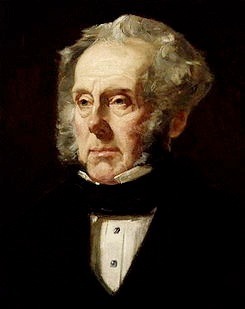
A few months back, those who are regular readers will remember The Fastest Love on Earth. The late Regency period romance i wrote that started with the opening of the Liverpool and Manchester Railway. During the period I worked on the story, I populate the Historical part of the Novel, with secondary characters, one of whom was Lord Palmerston.
Henry John Temple, 3rd Viscount of Plamerston would become Prime Minister in the Victorian Age, after the time of the novel, but most men who do become Prime Minister surely impact the world well before they rise to that office.
During the period of The Fastest Love on Earth he is a neighbor to our hero of that story and he is also Foreign Secretary in the Cabinet of the Duke of Wellington. A man who is very prominent during the Regency of course, and in many of my own stories as so many of the heroes I plunk into my tales see service in the Peninsular Wars with the Iron Duke. Palmerston was also the Foreign Secretary for Lord Melbourne, who preceded and succeeded Duke Arthur as Prime Minister. The Viscount Melbourne sister, Lady Emily Cowper married Palmerston.
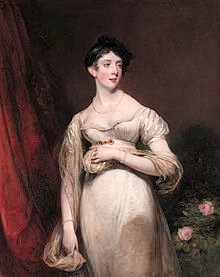
We should look into Lady Emily because she was a Patroness of Almacks. She also had a 20 year love affair with Palmerston before they married. Palmerston in his young days, well before anyone saw him as a future Prime Minister during the reign of Victoria, was known as Cupid in the inner circles of Regency society. In government he was known as Pam.
Palmerston was in office from 1807, when he was 23 until he died in 1865. Pam studied at Harrow School and the University of Edinburgh, then finished at St. John's College, Cambridge. As a nobleman he did not have to take an examination to get his degree, he did however take the exams and passed with first-class honors.
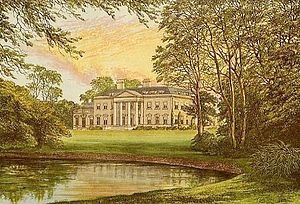 (Their home-Broadlands)
(Their home-Broadlands)
We often discuss pocket boroughs, and Palmerston finally got into the house of Commons as a Tory MP in June of 1807 after twice not getting in. From 1809-1828 he served as Secretary of War, so that was his position during the heart of the Regency era.
On April Fools 1818, he was shot by a retired officer on half pay, but the wound was just a graze. Palmerston found that his assailant was mad, and so he paid the legal defense of the man who attacked him.
I think that the best place to use one such as Palmerston is in his service to the crown as Secretary of War during the period, or of Lady Cowper's Cupid at Almacks. We often need such additional characters to round out our panoply, and we almost always look to Almacks as a place that society considers one of the legs that supports it. Cupid, Pam, Palmerston was an ardent attendee and his tie to Lady Emily would have him easily be an acquaintance of any of our heroes who spend time there.
Yearly Word Count
As the last three weeks are upon us for the year, I stand at 970,000 words so far. My goal has become to hit 1,040,000 words. This would be 20,000 a week, no matter if I took vacation or sick days from writing. Which I have. That is the goal. 19 more days. Hope I can make it.
EHFA
The first post for the English Historical Fiction Authors went live and more new visitors showed up then, then for other days preceding it! All about waltzing during our period. I think I posted how another writer got me all upset by writing of waltzing before there was any waltzing. You can view it here.
I have decided my next two posts, one on New Years Eve, which I researched for The Other Shoe: Regency-Wallpaper. Then following that, I shall write on Castlereagh, who I believe was the spymaster of the British Government for a time especially during the war.
ECO Agents
My brother Douglas has his PHd, and was a hot shot BioChemist at one time. Working at the NIH and the FBI. Until these last years where he has started to write textbooks and teach. He called to say he was approached by a writer of Young Adult fiction to do a series of books about teenage students who have a bent to protect the earth and make us more green. Doug wrote an outline, the other writer disappeared and it was turned over to me. Here is Chapter 5's start, though since it is YA, and we want to have our hero emerge early, it will probably be chapter 1.
Chapter 5
Watching the clock was something he was sure no one else did. It was in the upper right hand corner of Parker's laptop screen. As well as on the thermostat near his window, on a bookshelf across from his desk, and even a mantel clock on his desk. He also had a wristwatch and he was sure his tutor, Mr. Frakes, had a watch as well.But Mr. Frakes also had an alarm on his phone that rang when the lesson time was up and he could leave. Mr. Frakes was the math tutor and came three times a week for two hours in the early afternoon. Parker was home schooled and had seven different tutors that his parents paid to teach him.
Some, including Mr. Frakes said they could do so over the internet and did not really need to be physically present, but Parkers parents insisted. And Mr. Frakes showed up. It was probably wise that he did so, otherwise Parker might not pretend to be so diligent.
At the moment he was just pretending to double check his answers on the three tests that Mr. Frakes had brought over. It was summer and even the kids in at the public school were out on break. Parker though was cramming to get extra work done before he left for his new school.
Another minutes ticked away, Parker noticed by glancing at the corner.
"Nearly time, Parker. Are you ready to send me your answers so I can grade them?"
"Almost Mr. Frakes. Just need to check this. Here are the first two tests." Parker clicked enter and the email with the two tests attached went to Mr. Frakes. Not quite another minute had passed, but then when it did, he prepare the email and sent it off to Mr. Frakes.
"Ah, good. Good. Well let's call it a day then. Your folks are out, but they said you are to play in the yard for an hour. Not to ride over to the park.
Parker nodded. That was fine with him. But he wasn't going to play in the yard. Mr. Frakes showed himself out.
His parents were out of the house and so entering his father's man cave could be done without anyone knowing. Parker was to leave for school in three days, so the punishment, even should he be caught, was not going to be too serious.
You had to way the risks with the rewards. His father was always saying. It was one of the concepts about managing money that his father was really concerned with.
The man cave was where the 80 inch screen was.
And for today, he wanted every bit of the resolution he could get.
He was going to play Call of Duty:Modern Warfare with his clan, the Lords MissRuled. The had a double s in misrule for Missouri. He was pretty sure all the other members of his clan were all over sixteen since they talked about cars and driving, and girls and stuff like that while they fought, or in their private forum chats. He kept his own age hidden so that they did not know he was younger.
He had two hours before his folks came home and he was going to use every minute that he could to score some great victories for his team. He set a loud timer so he go AFK with enough time to leave the battle and return the room to the way his father liked it.
Parker ejected his father's bowling disk from the PS3, and then put his own in, and scrolled to his account on PSN to sign in. Fortunately his father did let him have an account the PS3 in the man cave. Otherwise he would have had to do some hacking on his father's console.
A few minutes later, he and the other Lords MissRuled were in the game. Killing others and wracking up victories.
After each mission he would look at the clock.
The punishment if his father caught him in the man cave without permission had always been severe. It was why he had to sneak in. Two weeks ago, he had asked to use it.
Prescott Thornton had looked like he was considering allowing him, "You know, I don't think so. Last time I let you in, you tracked mud on the carpet, and I don't really like that."
Parker hadn't. His father had tracked the mud into the room, but he was blaming Parker again. So Parker knew it was better to not ask permission sometimes. Sometimes you just had to do what you had to do. And the Lords MissRuled were way ahead of anyone else they had met so far. It was a good day.
Parker was able to put everything away, and even remembered to put the bowling disk back in before his folks got home. He was taking his PS3 to school with him, but he did not know if he was going to get as much time to play as he had at his parents home. He told his online friends that he would try to connect with them.
Parker knew every year it got harder to remember the times when he was a child. Kansas City, at least the neighborhood he had grown up could have been right out of a TV show. Parker knew now that the house he grew up in the Roanoke Park section of town was a fake Tudor two story affair. Back then, it was just a great big home. Much bigger than his family really needed. He had no siblings so it was just his parents and he.
He had a lot more space for himself growing up then he had when he reached his away school. He could not really call it boarding school, even though he was boarding there. But he had been advanced to tenth grade and still was faster at everything then the other students. His parents had been advised to take him out of school and get him home schooling where he could test above his grade and get his diploma. With online teaching, he could also start college work from home.
Parker just felt he didn't fit it. At least with the kids of the neighborhood, he could ride his bike and play in the park and there school did not matter.
One of his first memories was Roanoke Park and his father training him to ride a bicycle. It was just after his birthday, and he had a hot blue two wheeler to celebrate. Riding a bike instead of a trike was what the big kids did. He was going to be a big kid. Though he liked to ride his trike up and down the street. His parents told him he could never leave the sidewalk with his trike and he always had to slow down at driveways.
With a bike he could ride all over the park and there were lots of sections without cars so he could go really fast. That would be way fun.
At first his father, the president of a small regional bank, had training wheels on the bike. They would run down the street and Parker could feel the air flow against him like wind, his father ran so fast and he pedaled as hard as he could. And then his father would let go and the bike would be a but wobbly but it was pretty steady.
His father, Prescott Thornton always said he had become a bank president not only because he was determined, but because with a name like Prescott, what else could he do. It was important, his father said, to live up to your name, and Thornton was a name that was at the bottom of the Declaration of Independence. Not that his father wanted to flat out tell everyone that they were descendants of a signer of such an august document, but it placed a great burden on the name.
Just as those that came over in the Mayflower felt they had some legacy to live up to, or when you joined the Sons or Daughters of the American Revolution. And Patrick was scheduled to become a member on his eighteenth birthday of that club. The name had a history and his father and mother told him he was to do great things because of his name.
They placed the first trophy he had earned on the mantel. His father had a whole lot of trophys in his mancave room. There was a big screen television there, that Patrick could only use when his father said he was allowed to, and he was punished if he was caught in the mancave at any other time.
Patrick's mother Beth had ribbons and sashes, tiaras from when she was a beauty contestant. She had been runner-up to Miss Missouri when she had met his father. He had been first vice president at grandpa's three branch bank. Parker knew that because Gampa Thornton always said that. That between his father meeting his mother and his being born a few years later, his father had made the small bank into eleven branches. It was over twenty-five branches when he left for school.
Parker knew now that made them pretty well off. He supposed another way he could tell his father did well is he always had food to eat. The house was warm in winter. He got a great selection of toys for Christmas and his birthday, and special release sneakers from Nike and New Balance when they came out. The only thing he did not have was friends at school, and a brother or sister.
Or that his father was a banker and people tended to give bankers lots of money. And his father said he was smart about the money. Other bankers took on too much debt and made risky loans. His father didn't, he always said. He took on solid loans in the community. He leant to homeowners with two jobs. His father also didn't sell the loans to other banks so the customers wouldn't look elsewhere when they needed their next loan.
His father said that these were life lessons. Learn about the people you needed to trust. In his father's case it was those he leant the bank's money to. For Parker, once his father accepted the fact that he was going to be a scientist and not a businessman, it was trust those he wanted to work with. Prescott had told his son that he had heard of a great many scientists who stole the work of their researchers to pursue such prizes as the Nobel, or other awards.
Parker thought what his father was saying was watch his back. His mother Beth, who was not the smartest of women he had come to realize for her beauty pageant answer to the question of what she wanted most was the safe, 'World Peace,' said that his father meant more than a trite modern slogan. He meant build a group that could be trusted. Trust was key.








November 26, 2011
Dance in Regency England, and other sundry matters
Dance in the Regency
At the top of the blog is now the place for history, and I thought I would write out one of the period dances that not only we do at our Regency Balls, but that I also teach. Then once it was done here, I can save myself a step when it gets posted to the Regency Assembly Press website.
The Duke of Kent's Waltz 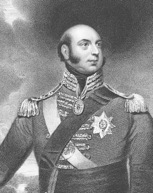 comes to us from 1801. It was rediscovered in a coverless book at the British Library which Jacqueline Schwab has since identified (and could be a woman who I danced with across Scotland in 2007. The one my search turned up plays in the band, Bare Necessities, and it is probably unlikely that there are two Jacqueline Schwabs researching Period English Country Dance.)
comes to us from 1801. It was rediscovered in a coverless book at the British Library which Jacqueline Schwab has since identified (and could be a woman who I danced with across Scotland in 2007. The one my search turned up plays in the band, Bare Necessities, and it is probably unlikely that there are two Jacqueline Schwabs researching Period English Country Dance.)
Edward Augustus, the father of Victoria, was the fourth son of George III. (And obviously the one to have the oldest surviving female child when he and his siblings had all died.) He was made Duke of Kent in 1799 at the age of 32. At this time waltz music was making its way to England but not the waltz itself.
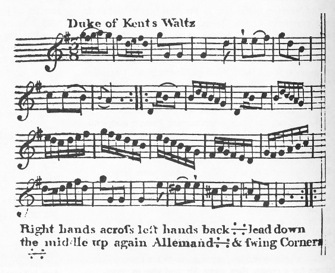
Duke of Kent's is a longways duple minor which means that men line up in a long line across from their ladies. The very top couple joins their hands and they take the hands of the new couple. That is one set. The couple who was closest to the music is the A couple or often called the 1st couple. The other couple is the B Couple, or 2nd couple.
Dance call from W.M. Cahusac's Annual Collection, 1801
1) 1-8 All right hands-across, and left hands back.
2) 1-8 A couple take two hands and side step down center two steps, two back, and cast down to second place. B couple lead up.
3) 1-4 All take right hands and balance forward, back, and change places. (Men turn partner under arm, down the set)
4) 5-8 Repeat with left hand back to place.
5) 9-12 Men turn women below their partners by right-hand.
6) 13-16 Men turn partners by left-hand.
Breaking this down for you.
Definitions
Cast-Casting out and around means that the A man turns over his left shoulder and walks behind the B man to the place vacated by the next A man in line as he has also cast and moved down the line. The A lady does the same casting concurrently over her right shoulder and walking behind the B lady on her side of the set.
Balance-A Balance is a shifting of weight. Here while taking the right hand, you step forward to your partner on your right foot as well, rocking your weight forward onto the right foot, then back on your left foot.
The Dance Figures
❖ Right hands across and left back means to take your partner right hand in your own and walk to their place, then switching hands once you get there, walk back to your starting place. We have four measures to get to the opposite side of the set, and then four measures of music to get home.❖ The A Couple are then going to take both hands and come close together in the center of the dance. (All the A couples.) They then move down two side steps away from the music, and then move back up to where they started. They finish this with a cast to second place. (This allows us to progress and dance with new partners at the end of all the phrases)
❖ We take right hands again and do the balance step as explained above. But there is a little more here. Instead of walking around to place, the men are going to raise their hand that holds their partners. Not to high because one we are in very tight sleeves and have little room to raise our own arms, and two, one must think how high we will raise a ladies hand as to not cause her discomfort. As we do this, the gentlemen are turning the lady under the raised arm as we all exchange places.
❖ Very simply we do what we just had done with our left hands. Balancing and turning.
❖ Here it is a little awkward for the lady at the very top of the dance will be ignored, and the man at the very bottom of the dance has no one to partner. Looking at your partner, the gentlemen then looks to the right of her (her left) and this is who he will dance with. It is very much how we started the dance, but this is a full turn to place in four measures.
❖ And to make things somewhat symmetrical, as most of these dances do, we have four measures to turn our own partner once more by the left this time, before it all starts over.
You can find more dances at the Regency Dance Instruction Page at my publisher, Regency Assembly Press.
Waltzing in the Regency
I have a post at English Historical Fiction Authors coming on December 6th that discusses this very issue. I was reading a book by a noted historian who has decided to tackle Regency Romance, and so jump from History to Fiction. Well she certainly did, having an impromptu dance where she gets the musicians, not in London, to play a waltz, and then teaches all the wives and officers how to waltz. Having taught dance for over 20 years, that would not happen. And in my article, I also point out when it is appropriate to have the waltz in England.
NaNoWriMo 2011
The Other Shoe
The NaNoWriMo Project passed the 50,000 relatively quickly. But finishing the entire story took 108,101 words and until the 23rd to do. Still, another year and another full first draft completed. The premise that love must be based more than on having the hots for each other, and that feelings can really be hurt to cause one to shut down about a suitor come into play. That there is an age and maturity to getting wed, and that being in love with love just is not enough. All is covered in the book. I hope the editing and second draft can come to fruition early next year.

Colonel Fitzwilliam's Correspondence Sales at 400!
November has been proving to be even slower than October. But we have hit 400 in sales. 1000 dedicated readers who enjoy the way I craft a story, and this becomes a full time gig with 5 or 6 new full length books each year and several novellas as well. (3000 of you and we could even afford professional copy-editing, instead of the volunteer work of other writers)

2nd part of JDP Interview
Last post I published the first half of my interview for Colonel Fitzwilliam's Correspondence . Now time for the last half, or you can read it all here. The interviewer was Joyce DiPastena at her blog. She writes medieval historical romance.
. Now time for the last half, or you can read it all here. The interviewer was Joyce DiPastena at her blog. She writes medieval historical romance.
JDP: It was truly a fascinating age. What inspired you to write Colonel Fitzwilliam's Correspondence?David: Before I was a teenager, we were flipping through channels on television, when my mother, who thought she could order us when it came to control of the tv set, made us stop on an old black and white show. 'That's my favorite,' and then she made my three younger brothers and I watch it. It was Olivier's Pride and Prejudice and yuck! Fast forward into my twenties and I began to appreciate that movie, and then in my 30′s loved it. I even delved into reading the original piece of chick lit and enjoyed it as well. While I do not think of myself as a tremendous fan of Jane Austen, her work certainly got me interested in the Regency, along with the re-enactment activities I was becoming involved in. And then I read Heyer.
What a hoot! Georgette's use of language to evoke a period was tremendous and that further gave me an appreciation for the period. As I spent more time with the Regency, meeting Cheryl who would become my wife in that society, I also worked on my writing. Also working on a true Historical of the Peninsular war. While researching that, the pieces fell into place for a sequel to Pride and Prejudice
. Something that Cheryl and I would also watch is the A&E (1995) version of each year. So many write about Darcy and Lizzy and so few acknowledge that the war was occurring and that those of the Ton were quite concerned that the Little Corporal go down to defeat. I thought it an important gap that needed to be addressed.
JDP: I agree. I think even historical romances sometimes need to be placed in their historical context. Please tell us a little about your Regency romance, Colonel Fitzwilliam's Correspondence.
David: Originally I envisioned that the Colonel would emerge and have a romance, but I quickly put Kitty into the scene. With Lydia gone, I found Kitty torn between wanting to be a better young lady than she had been while her more boisterous sister led her about, but also still a person of fun. I knew that the growth that occurs in all of us over time could be telling for one such as Kitty moving from being a girl to a woman.
I also knew that the war lasts for years, and a woman, if not married before her lover goes to war, most likely would not wait and appear to be on the shelf. When I placed the first letter in the story as a device to appease and contain the ever flighty Mrs. Bennet, I had no realization that would become the device I could employ for the entire story, but the truth is that England was growing closer by virtue of the post. Look to the original and the post between Jane and Lizzy telling of Lydia's flight. Look at the missive Darcy places in the hands of Lizzy to explain himself. There is a great deal of letter writing occurring.
I believe that carries my book. That it is also the change in our hero, who becomes a great correspondent and uses his connections back in England to keep him sane amidst the battlefields of Portugal and Spain. The crux of both his growth, and that of his love interest occurs when he returns from the war. I attempt to place my own use of language, as did Heyer, into the story. I think this is a dividing point for my readers. Some have related that they find this works for them, while others expecting this book to be our current use of language can't get past that.
The last caveat of a work based upon another's writing is that many have their own ideas of what should be happening to the characters the original author created after writing The End. I of course take all those characters in the direction I chose. I used the last few paragraphs as a guideline, and I used Aldous Huxley's view of Pride and Prejudice's Catherine de Bourgh portrayed by Edna May Oliver for mine more than some of the others. Austen says that Lady Catherine and Elizabeth will make amends in the final paragraphs of the novel. The Olivier movie (1940) I think shows that clearly. (Edna May beats Judi Dench in this portrayal, hands down-IMO)
JDP: Are you working on any new projects?
David: Always. Currently being edited by my core group is a modern romance. I don't want to say too much, but as it is Halloween, there are certain spectral beings that bring humor and channel Cupid. There are a few other Regencies also being edited at the moment. One called Beggars Can't be Choosier, the other is Two Peas in a Pod. The last about identical twins and mistaken identities. Beggars has the underlying theme that so many Regency marriages were founded on, marrying for money.
JDP: Where can readers obtain copies of your books?
David: All my books are available at Amazon, Barnes and Noble, and Smashwords. The iTunes-iBookstore carries my Regencies
ECO Agents, Book 1
My brother Dr. Douglas Wilkin, who has worked at the NIH and FBI (Isn't it cool to work at Acronym kind of places?) writes as well, though he does text books. He contacted me with the idea of a school dedicated to young people who are exceptional and studying to be scientists. Young people who have adventures in science, hence the Agents part. And with a green focus, thus ECO. Here is the first five pages showcasing our Villain.
Chapter 1
His finger nails had been polished that morning by a manicurist as he had his weekly trim and a fresh shave. Though he used an electric razor every other day of the week, this once a week indulgence was certainly something he could afford."Mr. Carter, the senior staff are assembled sir." That was the voice of one of his three personal assistants. Michael. Not only did he Zedadiah need three assistants, he had several office suites throughout the world with secretaries, project managers, vice presidents, troubleshooters, all ready to jump and aid him in managing the world's biggest conglomerate.
Third biggest company by sales, behind Apple and Exxon Mobil. But a great deal more profitable that those two. ZED Corporation, an affectation he had renamed the company when he had first gotten control of what had been the old E4A conglomerate.
Then the company had offices in Europe, America, Asia, Africa and Australia, and extracting commodities had been the business model. Zedadiah had started in the New York office at sixteen. He had used a fake idea that said he was twenty-one and a little computer hacking had created a a paper trail to show he had graduated from an Ivy-League college.
He had a few minutes as he walked to the foyer of the building. The 91st story overlooking London's Isle of Dogs. ZED Corp had built the largest building in the Canary Wharf section for it's world wide headquarters. Not only the tallest building there, but in all of Europe as well. If they had stayed in New York, they would have been one of many, not they rose and towered above all others that could be seen. Size really does matter.
Zedadiah remembered when he had first applied at the old E4A company. Three floors then of a middling size skyscraper in Manhattan. The HR interviewer looked at him when she sat down, "You look quite young, which may be a difficulty for your co-workers, or you."
Zedadiah thought quickly, he had always been the youngest in any circle he had been in. His faked credentials had some basis in reality. He had completed his first year at college, a prodigy, he had enrolled three years younger than his classmates. But after one year, he knew more about economic theory than most who were graduating that year. Zedadiah certainly knew enough to hack the computer system and give himself all the documentation that showed he graduated.
"I have had that problem for as long as I can remember," Zedadiah had told the lady. Ms. Schmanski, he remembered. She was not a native New Yorker. He could tell that she had a great deal of the midwest in her. Which was not a criticism, but he was a native of the tri state. "I put my head down, do my work, and then show that because I look young does not mean that I am not accomplished. You can see I interned last summer for your Boston office."
"Yes, I made some phone calls and they said that they remembered you."
He quietly snorted a laugh. He had found where all the other interns for E4A were as well as six other large companies. He had spent a day at each rotating through all the companies. He had been at the E4A offices for perhaps thirty hours, but he had glad handed as many people as he could. He had dropped his name, and then he had left them with reports that had been assigned to the interns to do. He also collected some nice cash from each company. Some of whom he had worked for throughout the school year as well.
Cash was always good. Only General Electric had figured out he had been absent more than he had been in attendance. Only IBMs computer security measures had been too challenging for him to pull the scam off.
"I am glad I made an impression," Zedadiah replied. "I hope they had favorable things to say."
"Bright, personable, your research was spot on. This is merely a formality. We would like to offer you a management trainee position, we start at 85 a year…"
The advantage to being able to hack computers was that you could hack lots of computers. And he had already hacked E4As computers the previous year. He knew how high she could go, and what trigger her supervisor might come in to finish the negotiations. "I have already had an offer of over 100 from IBM. Are you sure you can't do better." Ten minutes later the supervisor came in and he finally got them to concede to their top number. 115 a year and three weeks vacation.
The money was not an issue, not really. It was access to information. That was what was going to make him wealthy. To learn about things before anyone else did, and E4A had people on every major continent. People who were only just beginning to understand that their computers could talk to each other faster than they could talk to one another.
Zedadiah knew that reminiscing was an indulgence. He had lived in the present since long before joining the company. And then leaving a few years later. Today was special. It was his fortieth birthday, officially that was. And the company was honoring him for reaching the milestone. Birthdays were great as a device he found for measuring how well he had achieved his objectives. This one was a year that many thought of as important. Born in 1972 and now it was 2012. The world had changed a great deal but fundamentals were all the same.
It was how much money and how much power you had that was important. At forty he was one of the five wealthiest in the world. Probably third, but the Forbes and Fortunes lists were never really quite accurate he had found as he became eligible for their lists. Especially since a great many of his assets he didn't report. Just like many of the things that ZED Corp owned or controlled. One needed their secrets in business.
Zedadiah could see his employees ahead, hundreds who worked in the building, many of whose names he didn't know. Several other employees of the conglomerate who had made sure they were in London for the day so they could attend and shake his hand. They knew, as he did when he was much lower on the ladder, that getting the boss to notice you was the way to advancement.
His first years at E4A he had thought to do so, and his skills with extracting economic information from the corporate computers had made him very successful at that. That coupled with the money he amassed during his summer of multiple internships, allowed him to invest in the stock exchange. He not only traded company securities but as his account balance ballooned, he used options, futures, traded commodities, and rode the largest wave of capital creation that America had ever known.
His salary negotiation was like nothing that first day for after a month of access to not only E4As computers, but also many of the systems from the companies he had interned at, he had made more than a years pay on the stock market. Within six months he had amassed a net worth of over a million dollars, and still not even seventeen. By twenty he had more than ten million and it was time to use that to leverage up to even greater wealth.
Zedadiah left E4A then and opened his office in London, a few blocks from where he now was. The applause was starting as they saw him approach the foyer. People already were beginning to sing, 'For he's a jolly good fellow,' Pity they didn't remember he was born in New Jersey and sang Happy Birthday instead. But he had now lived abroad for many years.
Not that he had cut his ties with the States. Zedadiah and more than a dozen accountants manipulated the tax codes of many countries to ensure that he paid very little in the way of tax. Keeping his US citizenship was crucial to that strategy. Even if he hadn't spent more than a couple months in the United States every year for the last decade.
When he left to set up his own company, he started his own investment fund, still stealing information from the computers of those companies he had one time worked for and had hacked their knowledge. He only used computers from his flat in Kensington, but that made him seem like a genius to his employees when they would get phone-calls from him, or those new emails to tell them to act upon one of his 'hunches.'
The company he formed was called Carter Investments, still a part of his conglomerate. His traders though had started to call themselves the 'Z-Men.' With his hunch, he had bought the majority interest in a French water company. The world in the nineties began to thrive on French bottled water. It was like minting money and he was able to purchase other commodities, and mineral extraction companies that he found at a discount, and then see rise to profitability.
There, on one of the tables off to the side of the marble encrusted foyer, were hundreds of bottles of ZED Corp water for the guests to enjoy. Everything now was a division of ZED Corp. Branding had become important and it bred loyalty amongst the mindless consumers. More of them trusted those that made the brand, then there own opinions to decide what they should use. What they should buy.
He snorted a laugh as he waved to the well wishers and then began to shake hands. His most loyal lieutenants that he allowed to work alongside him in London. Others who managed the various divisions and companies that had flown in for the day. Someone handed him a glass of champagne and when he took it, there began a call for a speech. Soon the chorus calling for him to give an oration was all that could be heard. He held up the champagne glass until he could make himself heard.
Are you a RAPper or a RAPscallion?








November 12, 2011
The 'Change (London Stock Exchange) during the Regency, an Interview and NaNo Progress
In keeping with the new format of my blog, first a little history, then the interesting bits and pieces of this writing life
The 'Change or the London Stock Exchange
It is very tempting to use the Exchange in the Regency era for it gives you the chance to write such things as the 'Change, or discuss Exchange Alley. That sets up an evocative description now in our present time. To discuss Jonathan's Coffee House, which is where the roots of the London Stock Exchange was founded just over 100 years before stories of the Regency take place.
Jonathan's Coffee-House was founded by Jonathan Miles, in Exchange Alley, around 1680. In 1696 patrons of the Coffee-House plotted to assassinate William III. And in '98 John Castaing started to post the prices of stocks and commodities. That then would be the start of systematic trading in London. That same year other traders that had been expelled from the Royal Exchange for rowdiness came to Jonathans and Garraway's Coffee House to conduct their business.
The Royal Exchange had been found by Sir Thomas Gresham in 1565 during the reign of Elizabeth I. It opened in 1571. As noted above, rude manners forced the stockbrokers to seek other locations to conduct their business. By the time of the Regency, fires had destroyed the original buildings of the Royal Exchange as well as the coffee-houses.
Lest we think Sir Thomas was perfect, it seems that he had an interest in the land where the Exchange was built, helping to build a part of his fortune. But upon his death, bequeathed that part of the rents from the Exchange to fund what became Gresham College, the first place of higher learning in London.
Jonathan's was where the shares of the South Sea Bubble traded. And by 1773 a coalition of traders built a new building in Sweeting's Alley that was dubbed New Jonathan's first, and later the Stock Exchange. Here traders paid a fee to enter and to trade. But fraud was rampant and by 1801 an annual subscription was enforced for the Stock Subscription room for traders. When the Subscription room was open, it still took a constable to remove all the non-members.
Then in 1802 moved to Capel Court where "The Stock Exchange" was labeled upon the entry. Still this was not enough and by 1812 a series of rules had become adopted so that trading could be done much more fairly. These rules and organization allowed the government to raise the large sums of money it needed to fight Napoleon.
An Interview
Last week I was interviewed for Colonel Fitzwilliam's Correspondence . In this blog, the first half of the interview, and next time the last half, or you can read it all here. The interviewer was Joyce DiPastena at her blog. She writes medieval historical romance.
. In this blog, the first half of the interview, and next time the last half, or you can read it all here. The interviewer was Joyce DiPastena at her blog. She writes medieval historical romance.
Today I have an author interview and giveaway with David William (D.W.) Wilkin, who among many other things, writes Regency romances. David has graciously agreed to give away one of his books at the end of this interview, Colonel Fiztwilliam's Correspondence, a Regency romance based on some characters from Jane Austen's Pride and Prejudice. Read on to learn more about David and find out how you can enter to win a copy of this book! (E-book open to International and US entries, print copy US only)
JDP: Thank you for joining us today, David. How did you become interested in writing about the Regency period?
David: That is a tale, and bear with me, I shall lead you to the end of the trail. I liked history enough from High School to make it my major in college. I specialized in Pre-Modern Asian history while getting my degree which is pretty far from the study of Regency England. But History, I have always found, is stories. I like stories and even before college I wrote some, but after, I started my quest to be a novelist. I also became an Historical Re-enactor.
I joined groups where we made the costumes of the era we were Re-enacting. I learned the dances from those times, and then actually taught well over 1000 people how to do them. Running regular dance practices. My early main focus was Medieval and Renaissance, but one day a friend said, 'Have I got a girl for you to meet,' and dragged me to a Regency Dance. Well, not that girl, but several years later, I met my wife, Cheryl at a Regency Ball.
To woo her (she was very far away), I wrote her a regency romance, a few pages a day, that turned into a novel. When taking a class to further enhance my writing, I resurrected the story and worked on it more. Then over the last ten years, found that a good third of my output was Regency Romances.
JDP: Wow, that's an amazing (and wonderfully romantic) story! What do you find most fascinating about the Regency era?
David: We of course stylize the era. How many of us portray London or Town, other than full of beauty and elegant living? When of course you step outside those stately homes, and there is filth in the streets. The lower classes are everywhere, and the middle classes are struggling. But in our Regencies, we set aside that and in is light and glitters. That is something I love. It is actually a fantasy world we create each time.
Even in movies, or especially in movies, the clothes our heroines and heroes wear are never smudged with dirt, or tattered. I find it hard to imagine that everything would look so clean back in the day. So on my Planet, where I recreate the Regency, I can enter the world of the Aristocracy and Nobility, and share those titles, and those riches. I think of it as a great escape.
JDP: Ah, yes, I relate to your cleaned up fantasy world. Only my characters live on Planet Medieval, rather than Planet Regency. I'm always interested in how authors research their historical novels. Could you tell us a little about how you researched the historical background for Colonel Fitzwilliam's Correspondence?
David: Colonel Fitzwilliam's Correspondence is of course a sequel to Pride and Prejudice . So first, I reread Austen's classic. My book also focuses on Darcy's cousin, who does not get a lot of play in a novel set during the Napoleonic Wars. It was still a time where a very rich man could purchase their rank, and one can imagine that the Earl of M—-K, as Austen calls Fitzwilliam's father, having done so for his son.
. So first, I reread Austen's classic. My book also focuses on Darcy's cousin, who does not get a lot of play in a novel set during the Napoleonic Wars. It was still a time where a very rich man could purchase their rank, and one can imagine that the Earl of M—-K, as Austen calls Fitzwilliam's father, having done so for his son.
As a history major, I have delved into military history, and have learned a thing or two about the Napoleonic Wars. Philip Haythornwaite's Wellington's Military Machine  , Sir Charles Oman's History of the Peninsular War
, Sir Charles Oman's History of the Peninsular War  , David Chandler's The Campaigns of Napoleon
, David Chandler's The Campaigns of Napoleon  and David Gates The Spanish Ulcer
and David Gates The Spanish Ulcer  all have places on my bookshelf along with dozens of others about the battles and period of the war. In addition to many books about the Regency. Knowing about the war and thinking about the Colonel, I knew that he had to be a participant in it.
all have places on my bookshelf along with dozens of others about the battles and period of the war. In addition to many books about the Regency. Knowing about the war and thinking about the Colonel, I knew that he had to be a participant in it.
I knew that by bringing the two together, I could craft a story with a little steel in our hero. (I hope I've conveyed that.) And that during the period, many, many men were affected truly by the war.
JDP: Can you share with us your top three favorite research books or other resources?
David: For the Regency era, my all time favorite is What Jane Austen Ate and Charles Dickens Knew by Daniel Pool  . Very similar but with enough extra is Kristine Hughes Everyday Life in Regency England
. Very similar but with enough extra is Kristine Hughes Everyday Life in Regency England  . Last, since I have been influenced by Georgette Heyer in creating my view of the Regency since a friend told me at one of those Regency Dances I just had to read Frederica
. Last, since I have been influenced by Georgette Heyer in creating my view of the Regency since a friend told me at one of those Regency Dances I just had to read Frederica  , is Jennifer Kloester's Georgette Heyer's Regency World
, is Jennifer Kloester's Georgette Heyer's Regency World .
.
JDP: Ahhh, I love Frederica, by Georgette Heyer! (And Friday's Child and These Old Shades and The Convenient Marriage and The Talisman Ring… Oops! Better stop and get on with the interview!) Are there any historical figures from the Regency era who particularly intrigue you?
David: We often forget that that across the channel a whole slew of characters, who were very much effecting what happened in London, were alive and influencing all of Europe. I think the most exciting is Ney. If your readers hear of his defense of the Grande Armee as it retreated from Russia and crossed the bridge at Kovno. Heroic stuff.
In England and our Regency, I love the many fictional Age of Sail officers. Hornblower shall always be a favorite, followed by Ramage, Bolitho, Drinkwater (isn't that a great name that Richard Woodman gave us for a Naval Hero?) Nelson then is fascinating to me as are some of the other great British seamen, Hornblower's Pellew was a real historical figure. Militarily Wellington and his generals are also fascinating. Henry Paget, a great cavalry commander that returns from the Peninsula and promptly runs-off with Wellington's sister-in law. Wellington thus cannot have him serve on his staff, at least not until Waterloo years later and there his leg had to be amputated. He lived almost 40 years after that. Stapleton Cotton (What a great name), a Cavalry officer who lived to the age of 91 after the war.
What of Sir Harry Smith, who Heyer immortalizes in The Spanish Bride . Later to become a Lt. General and his wife, saved from Badajoz, becomes the woman that the cities (3 of them) of Ladysmith is named after. Beau Brummel and his Dandy Club, all I find fascinating
. Later to become a Lt. General and his wife, saved from Badajoz, becomes the woman that the cities (3 of them) of Ladysmith is named after. Beau Brummel and his Dandy Club, all I find fascinating
More next time…
NaNoWriMo 2011
Already finished the 50,000 word goal of the NaNo Organization. But still hard at work on the novel, The Other Shoe. Added one chapter beyond my original plotting, so now at 16 chapters. Nearing the end of Chapter 11, at almost 70,000 words.
Here is an excerpt (As usual, about 5 pages from the first chapter, unedited at this stage):
Chapter 1
"You sir, are not listening to a word that I have spoken," Lord Frederick Vesey said.
Michael, or more completely Michael Hope Montgomery Baxter, the Viscount Devon, when he was younger, might have winced at such criticism. And certainly if Frederick's brother Henry had been the one to deliver it, he would have. Frederick's late older brother had been Michael's friend. Frederick was now a project of his, as he had been left without immediate family and the tie that Michael had to the deceased Henry was a bond, and a promise that needed to be tended to.
The other gentlemen at the table chuckled a little at the scold that Michael had received, and placing his cards carefully in front of him, Michael turned and gave Frederick a stare. It was meant to unnerve, and generally was successful.
"Oh, sorry. Pray forgive," Vesey said.
The room was quite, it being late and only one other game was taking place. Most of the members of Brooks had retired or were elsewhere in the club.
Michael said, "Quite. A few moments more Lord Vesey," the other men at the table laughed, or in the case of Mr. Samuals, cleared his throat.
Mr. Samuals then said, "Gentlemen, are we playing whist, or listening to the latest tale of the lovelorn? I have a significant sum wagered on this rub."
Michael had to agree that Samuals did have a large sum in the pot. It stood at over five hundred to the winning pair. By the end of the evening, Michael expected that it could easily triple.
Michael responded, "You are correct Mr. Samuals that we are playing whist." Then he drew himself up in his chair and using all the generations that had proceeded him, he poured the essence of his family in the second part of an admonishment that dignity and grace should have left unsaid, but then Samuals wasn't from an old family, "But good manners has allowed Lord Vesey to apologize and should his interruptions have been such an annoyance, you would have best been served by asking for his silence at the beginning of his tale of affection for Lady B. that you may then have spent time concentrating on your hand. To whit, now that time has long passed as we know far more of Lord Vesey's desires then perhaps you are comfortable of knowing though his need to share is keen. It however has left you in such a predicament that I fear you have lost this hand."
"What, we have only played six tricks, and we have four of them!" Samuals said.
"Yes, but you have led with your hearts and in these six hands we have played most of the cards in the deck. I shall take this trick with the king, then in the next trick, Lord William shall take the trick with his queen, I follow for I still have my Jack and of a sudden we have five of the nine tricks that we have seen vanquished. Do I need to tell you how the rest of the hand plays out? And as the second hand to us, the rubber shall be ours." It was academic and clear. But Samuals insisted since he could not see how it all would happen. The Baron of Lechmere who partnered Mr. Samuals shook his head, and then pointed out that it was so. They had lost.
It took a minute, perhaps two to calm Mr. Samuals and urge him to proceed to the gallery where he might find some liquid refreshment. Then they could resume play in a quarter hour as Michael, dealt with his friend.
"I am sorry my lord," Lord Frederick said. "I did not mean to cause you any problems."
The Vesey home, Monkton Priory was quite close to the ancestral home of the Duke's of Stanfield and so Michael, as the heir and only son of the present Duke, grew up with the young men of Monkton. Henry, the elder Vesey boy and he had been childhood playfellows and gone to school together, as well as being gentlemen volunteers in Spain together.
Where Henry lost his life and thus Frederick became the lord of Monkton. As Henry struggled to survive his wounds, knowing that it was futile, he held Michael to a pledge to look out for his younger brother as if Frederick was Michael's own. Michael had agreed of course. You always agreed to the wishes of the dying. Michael though had not realized that having a younger brother, as he had no siblings, was to be such a trial.
"Do not worry about Mr. Samuals. He has a short attention span when it comes to his pockets. He had nearly three hundred pounds of me last week, and twice that a month gone." Michael though would not say that he was nearly five hundred ahead of Mr. Samuals after all the games they had played. It was a trick of Michael's, one that his father the Duke did not like, that he knew exactly where he was at any moment in regards to his fortune.
Since he was initially on an allowance from the Duke, a small one that got smaller each year, anything extra that he succeeded in getting was found money, and an idle gentleman was always in need of money. Though Michael hardly ever touched it, having the ready was quite important for paupers, as well as the sons of Dukes.
Lord Vesey said, "Still, I know I deserve a scold."
"You do indeed. You have mentioned this lady that you are enamored of in the club. That you disguised her identity a little by referring to her as Lady B, is an affectation. We do not talk of such things in public, Lord Vesey."
Frederick looked admonished, so Michael knew that his reprimand was somewhat successful. He could not let up though. "I should exact a promise from you that you shall not do so again, for this rule, well most of the rules regarding our behavior are unwritten of course. I should like you to try to do better in my presence and that of those who are not solely of our circle. William of course you need not disguise your meaning from, but Mr. Samuals and Lechmere do not need to be party to your most personal pursuits of love."
Michael often wished he need not hear of them either. Vesey seemed to fall in love every hour. And while it would be important one day for there to be new little Veseys, Frederick was but a few years past twenty. A boy still in many things. Michael suspected were his own mother alive, or had he sisters as his friend, Lord William the Earl of Mercia, then he would be constantly harangued to marry. The countess, William's mother, had included him in the conversation a time or two when she had pointedly been scolding William to marry.
Frederick nodded, "I understand my lord, I shall try."
Michael said, "The others have moved off, Frederick. I have told you before you may call me Devon, or Michael." It was what a brother would do. The honorary title of Viscount Devon, his father's lessor title had suited him all his life. Most called Michael by that, though Lord William and Frederick often did call him Michael. The only other to do so was the Duke, but he did so when vexed with his heir.
"Sorry Michael, of course. But I am a little unnerved. Lady Barb… I mean Lady B was so charming this evening at Almacks. You really should have come out…"
Michael held up his hand, "I really do not like dancing at present."
"Henry told me that you commanded the dance floor when the two of you first came to Town. He said that all the ladies would form lines for your attention."
Michael could not argue with that. He had not realized quite in the beginning that most, if not all, desired that attention for they wished to be the next duchess of Stanfield. That would get any man's attention. In any case, since he had gone to Spain and returned, though it had been some years, he had no desire to dance any longer.
Michael said, "We should not talk of my desires, or lack of them. You came to me for some advice and help with this current inamorata of yours."
Frederick sat bolt upright in the chair as if he had been caned at school. "She is not my inamorata, at least not yet. She gave me one dance, and her father was quite agreeable."
"The Earl of Tyrone. Yes I know him. At least we have talked a time or two. A likable chap. He is a member of Boodles across the street. A Tory of course." Brooks was the home to the Whigs, but Michael did not often care to argue politics. He was a member of Brooks as well, for his father the Duke was also a member there. So much of who one was and what one did was tied to whose son one was, that Michael had little choice in the clubs he was to belong to, as well as what thoughts of his own he was allowed to express. At least not until he became the Duke. A time far in the future, for his father, though they did not see eye to eye, was his closest family member.








The 'Change, an Interview and NaNo Progress
In keeping with the new format of my blog, first a little history, then the interesting bits and pieces of this writing life
The 'Change or the London Stock Exchange
It is very tempting to use the Exchange in the Regency era for it gives you the chance to write such things as the 'Change, or discuss Exchange Alley. That sets up an evocative description now in our present time. To discuss Jonathan's Coffee House, which is where the roots of the London Stock Exchange was founded just over 100 years before stories of the Regency take place.
Jonathan's Coffee-House was founded by Jonathan Miles, in Exchange Alley, around 1680. In 1696 patrons of the Coffee-House plotted to assassinate William III. And in '98 John Castaing started to post the prices of stocks and commodities. That then would be the start of systematic trading in London. That same year other traders that had been expelled from the Royal Exchange for rowdiness came to Jonathans and Garraway's Coffee House to conduct their business.
The Royal Exchange had been found by Sir Thomas Gresham in 1565 during the reign of Elizabeth I. It opened in 1571. As noted above, rude manners forced the stockbrokers to seek other locations to conduct their business. By the time of the Regency, fires had destroyed the original buildings of the Royal Exchange as well as the coffee-houses.
Lest we think Sir Thomas was perfect, it seems that he had an interest in the land where the Exchange was built, helping to build a part of his fortune. But upon his death, bequeathed that part of the rents from the Exchange to fund what became Gresham College, the first place of higher learning in London.
Jonathan's was where the shares of the South Sea Bubble traded. And by 1773 a coalition of traders built a new building in Sweeting's Alley that was dubbed New Jonathan's first, and later the Stock Exchange. Here traders paid a fee to enter and to trade. But fraud was rampant and by 1801 an annual subscription was enforced for the Stock Subscription room for traders. When the Subscription room was open, it still took a constable to remove all the non-members.
Then in 1802 moved to Capel Court where "The Stock Exchange" was labeled upon the entry. Still this was not enough and by 1812 a series of rules had become adopted so that trading could be done much more fairly. These rules and organization allowed the government to raise the large sums of money it needed to fight Napoleon.
An Interview
Last week I was interviewed for Colonel Fitzwilliam's Correspondence . In this blog, the first half of the interview, and next time the last half, or you can read it all here. The interviewer was Joyce DiPastena at her blog. She writes medieval historical romance.
. In this blog, the first half of the interview, and next time the last half, or you can read it all here. The interviewer was Joyce DiPastena at her blog. She writes medieval historical romance.
Today I have an author interview and giveaway with David William (D.W.) Wilkin, who among many other things, writes Regency romances. David has graciously agreed to give away one of his books at the end of this interview, Colonel Fiztwilliam's Correspondence, a Regency romance based on some characters from Jane Austen's Pride and Prejudice. Read on to learn more about David and find out how you can enter to win a copy of this book! (E-book open to International and US entries, print copy US only)
JDP: Thank you for joining us today, David. How did you become interested in writing about the Regency period?
David: That is a tale, and bear with me, I shall lead you to the end of the trail. I liked history enough from High School to make it my major in college. I specialized in Pre-Modern Asian history while getting my degree which is pretty far from the study of Regency England. But History, I have always found, is stories. I like stories and even before college I wrote some, but after, I started my quest to be a novelist. I also became an Historical Re-enactor.
I joined groups where we made the costumes of the era we were Re-enacting. I learned the dances from those times, and then actually taught well over 1000 people how to do them. Running regular dance practices. My early main focus was Medieval and Renaissance, but one day a friend said, 'Have I got a girl for you to meet,' and dragged me to a Regency Dance. Well, not that girl, but several years later, I met my wife, Cheryl at a Regency Ball.
To woo her (she was very far away), I wrote her a regency romance, a few pages a day, that turned into a novel. When taking a class to further enhance my writing, I resurrected the story and worked on it more. Then over the last ten years, found that a good third of my output was Regency Romances.
JDP: Wow, that's an amazing (and wonderfully romantic) story! What do you find most fascinating about the Regency era?
David: We of course stylize the era. How many of us portray London or Town, other than full of beauty and elegant living? When of course you step outside those stately homes, and there is filth in the streets. The lower classes are everywhere, and the middle classes are struggling. But in our Regencies, we set aside that and in is light and glitters. That is something I love. It is actually a fantasy world we create each time.
Even in movies, or especially in movies, the clothes our heroines and heroes wear are never smudged with dirt, or tattered. I find it hard to imagine that everything would look so clean back in the day. So on my Planet, where I recreate the Regency, I can enter the world of the Aristocracy and Nobility, and share those titles, and those riches. I think of it as a great escape.
JDP: Ah, yes, I relate to your cleaned up fantasy world. Only my characters live on Planet Medieval, rather than Planet Regency. I'm always interested in how authors research their historical novels. Could you tell us a little about how you researched the historical background for Colonel Fitzwilliam's Correspondence?
David: Colonel Fitzwilliam's Correspondence is of course a sequel to Pride and Prejudice . So first, I reread Austen's classic. My book also focuses on Darcy's cousin, who does not get a lot of play in a novel set during the Napoleonic Wars. It was still a time where a very rich man could purchase their rank, and one can imagine that the Earl of M—-K, as Austen calls Fitzwilliam's father, having done so for his son.
. So first, I reread Austen's classic. My book also focuses on Darcy's cousin, who does not get a lot of play in a novel set during the Napoleonic Wars. It was still a time where a very rich man could purchase their rank, and one can imagine that the Earl of M—-K, as Austen calls Fitzwilliam's father, having done so for his son.
As a history major, I have delved into military history, and have learned a thing or two about the Napoleonic Wars. Philip Haythornwaite's Wellington's Military Machine  , Sir Charles Oman's History of the Peninsular War
, Sir Charles Oman's History of the Peninsular War  , David Chandler's The Campaigns of Napoleon
, David Chandler's The Campaigns of Napoleon  and David Gates The Spanish Ulcer
and David Gates The Spanish Ulcer  all have places on my bookshelf along with dozens of others about the battles and period of the war. In addition to many books about the Regency. Knowing about the war and thinking about the Colonel, I knew that he had to be a participant in it.
all have places on my bookshelf along with dozens of others about the battles and period of the war. In addition to many books about the Regency. Knowing about the war and thinking about the Colonel, I knew that he had to be a participant in it.
I knew that by bringing the two together, I could craft a story with a little steel in our hero. (I hope I've conveyed that.) And that during the period, many, many men were affected truly by the war.
JDP: Can you share with us your top three favorite research books or other resources?
David: For the Regency era, my all time favorite is What Jane Austen Ate and Charles Dickens Knew by Daniel Pool  . Very similar but with enough extra is Kristine Hughes Everyday Life in Regency England
. Very similar but with enough extra is Kristine Hughes Everyday Life in Regency England  . Last, since I have been influenced by Georgette Heyer in creating my view of the Regency since a friend told me at one of those Regency Dances I just had to read Frederica
. Last, since I have been influenced by Georgette Heyer in creating my view of the Regency since a friend told me at one of those Regency Dances I just had to read Frederica  , is Jennifer Kloester's Georgette Heyer's Regency World
, is Jennifer Kloester's Georgette Heyer's Regency World .
.
JDP: Ahhh, I love Frederica, by Georgette Heyer! (And Friday's Child and These Old Shades and The Convenient Marriage and The Talisman Ring… Oops! Better stop and get on with the interview!) Are there any historical figures from the Regency era who particularly intrigue you?
David: We often forget that that across the channel a whole slew of characters, who were very much effecting what happened in London, were alive and influencing all of Europe. I think the most exciting is Ney. If your readers hear of his defense of the Grande Armee as it retreated from Russia and crossed the bridge at Kovno. Heroic stuff.
In England and our Regency, I love the many fictional Age of Sail officers. Hornblower shall always be a favorite, followed by Ramage, Bolitho, Drinkwater (isn't that a great name that Richard Woodman gave us for a Naval Hero?) Nelson then is fascinating to me as are some of the other great British seamen, Hornblower's Pellew was a real historical figure. Militarily Wellington and his generals are also fascinating. Henry Paget, a great cavalry commander that returns from the Peninsula and promptly runs-off with Wellington's sister-in law. Wellington thus cannot have him serve on his staff, at least not until Waterloo years later and there his leg had to be amputated. He lived almost 40 years after that. Stapleton Cotton (What a great name), a Cavalry officer who lived to the age of 91 after the war.
What of Sir Harry Smith, who Heyer immortalizes in The Spanish Bride . Later to become a Lt. General and his wife, saved from Badajoz, becomes the woman that the cities (3 of them) of Ladysmith is named after. Beau Brummel and his Dandy Club, all I find fascinating
. Later to become a Lt. General and his wife, saved from Badajoz, becomes the woman that the cities (3 of them) of Ladysmith is named after. Beau Brummel and his Dandy Club, all I find fascinating
More next time…
NaNoWriMo 2011
Already finished the 50,000 word goal of the NaNo Organization. But still hard at work on the novel, The Other Shoe. Added one chapter beyond my original plotting, so now at 16 chapters. Nearing the end of Chapter 11, at almost 70,000 words.
Here is an excerpt (As usual, about 5 pages from the first chapter, unedited at this stage):
Chapter 1
"You sir, are not listening to a word that I have spoken," Lord Frederick Vesey said
Michael, or more completely Michael Hope Montgomery Baxter, the Viscount Devon, when he was younger, might have winced at such criticism. And certainly if Frederick's brother Henry had been the one to deliver it, he would have. Frederick's late older brother had been Michael's friend. Frederick was now a project of his, as he had been left without immediate family and the tie that Michael had to the deceased Henry was a bond, and a promise that needed to be tended to.
The other gentlemen at the table chuckled a little at the scold that Michael had received, and placing his cards carefully in front of him, Michael turned and gave Frederick a stare. It was meant to unnerve, and generally was successful.
"Oh, sorry. Pray forgive," Vesey said.
The room was quite, it being late and only one other game was taking place. Most of the members of Brooks had retired or were elsewhere in the club.
Michael said, "Quite. A few moments more Lord Vesey," the other men at the table laughed, or in the case of Mr. Samuals, cleared his throat.
Mr. Samuals then said, "Gentlemen, are we playing whist, or listening to the latest tale of the lovelorn? I have a significant sum wagered on this rub."
Michael had to agree that Samuals did have a large sum in the pot. It stood at over five hundred to the winning pair. By the end of the evening, Michael expected that it could easily triple.
Michael responded, "You are correct Mr. Samuals that we are playing whist." Then he drew himself up in his chair and using all the generations that had proceeded him, he poured the essence of his family in the second part of an admonishment that dignity and grace should have left unsaid, but then Samuals wasn't from an old family, "But good manners has allowed Lord Vesey to apologize and should his interruptions have been such an annoyance, you would have best been served by asking for his silence at the beginning of his tale of affection for Lady B. that you may then have spent time concentrating on your hand. To whit, now that time has long passed as we know far more of Lord Vesey's desires then perhaps you are comfortable of knowing though his need to share is keen. It however has left you in such a predicament that I fear you have lost this hand."
"What, we have only played six tricks, and we have four of them!" Samuals said.
"Yes, but you have led with your hearts and in these six hands we have played most of the cards in the deck. I shall take this trick with the king, then in the next trick, Lord William shall take the trick with his queen, I follow for I still have my Jack and of a sudden we have five of the nine tricks that we have seen vanquished. Do I need to tell you how the rest of the hand plays out? And as the second hand to us, the rubber shall be ours." It was academic and clear. But Samuals insisted since he could not see how it all would happen. The Baron of Lechmere who partnered Mr. Samuals shook his head, and then pointed out that it was so. They had lost.
It took a minute, perhaps two to calm Mr. Samuals and urge him to proceed to the gallery where he might find some liquid refreshment. Then they could resume play in a quarter hour as Michael, dealt with his friend.
"I am sorry my lord," Lord Frederick said. "I did not mean to cause you any problems."
The Vesey home, Monkton Priory was quite close to the ancestral home of the Duke's of Stanfield and so Michael, as the heir and only son of the present Duke, grew up with the young men of Monkton. Henry, the elder Vesey boy and he had been childhood playfellows and gone to school together, as well as being gentlemen volunteers in Spain together.
Where Henry lost his life and thus Frederick became the lord of Monkton. As Henry struggled to survive his wounds, knowing that it was futile, he held Michael to a pledge to look out for his younger brother as if Frederick was Michael's own. Michael had agreed of course. You always agreed to the wishes of the dying. Michael though had not realized that having a younger brother, as he had no siblings, was to be such a trial.
"Do not worry about Mr. Samuals. He has a short attention span when it comes to his pockets. He had nearly three hundred pounds of me last week, and twice that a month gone." Michael though would not say that he was nearly five hundred ahead of Mr. Samuals after all the games they had played. It was a trick of Michael's, one that his father the Duke did not like, that he knew exactly where he was at any moment in regards to his fortune.
Since he was initially on an allowance from the Duke, a small one that got smaller each year, anything extra that he succeeded in getting was found money, and an idle gentleman was always in need of money. Though Michael hardly ever touched it, having the ready was quite important for paupers, as well as the sons of Dukes.
Lord Vesey said, "Still, I know I deserve a scold."
"You do indeed. You have mentioned this lady that you are enamored of in the club. That you disguised her identity a little by referring to her as Lady B, is an affectation. We do not talk of such things in public, Lord Vesey."
Frederick looked admonished, so Michael knew that his reprimand was somewhat successful. He could not let up though. "I should exact a promise from you that you shall not do so again, for this rule, well most of the rules regarding our behavior are unwritten of course. I should like you to try to do better in my presence and that of those who are not solely of our circle. William of course you need not disguise your meaning from, but Mr. Samuals and Lechmere do not need to be party to your most personal pursuits of love."
Michael often wished he need not hear of them either. Vesey seemed to fall in love every hour. And while it would be important one day for there to be new little Veseys, Frederick was but a few years past twenty. A boy still in many things. Michael suspected were his own mother alive, or had he sisters as his friend, Lord William the Earl of Mercia, then he would be constantly harangued to marry. The countess, William's mother, had included him in the conversation a time or two when she had pointedly been scolding William to marry.
Frederick nodded, "I understand my lord, I shall try."
Michael said, "The others have moved off, Frederick. I have told you before you may call me Devon, or Michael." It was what a brother would do. The honorary title of Viscount Devon, his father's lessor title had suited him all his life. Most called Michael by that, though Lord William and Frederick often did call him Michael. The only other to do so was the Duke, but he did so when vexed with his heir.
"Sorry Michael, of course. But I am a little unnerved. Lady Barb… I mean Lady B was so charming this evening at Almacks. You really should have come out…"
Michael held up his hand, "I really do not like dancing at present."
"Henry told me that you commanded the dance floor when the two of you first came to Town. He said that all the ladies would form lines for your attention."
Michael could not argue with that. He had not realized quite in the beginning that most, if not all, desired that attention for they wished to be the next duchess of Stanfield. That would get any man's attention. In any case, since he had gone to Spain and returned, though it had been some years, he had no desire to dance any longer.
Michael said, "We should not talk of my desires, or lack of them. You came to me for some advice and help with this current inamorata of yours."
Frederick sat bolt upright in the chair as if he had been caned at school. "She is not my inamorata, at least not yet. She gave me one dance, and her father was quite agreeable."
"The Earl of Tyrone. Yes I know him. At least we have talked a time or two. A likable chap. He is a member of Boodles across the street. A Tory of course." Brooks was the home to the Whigs, but Michael did not often care to argue politics. He was a member of Brooks as well, for his father the Duke was also a member there. So much of who one was and what one did was tied to whose son one was, that Michael had little choice in the clubs he was to belong to, as well as what thoughts of his own he was allowed to express. At least not until he became the Duke. A time far in the future, for his father, though they did not see eye to eye, was his closest family member.








November 2, 2011
Lloyd's of London, November Starts and NaNoWriMo 2011
New Format
I have recently been invited to a Blog Tribe, the concept of which I am still a little sketchy on, but the idea is 6 other writers who explore the same periods as I get together and as we create our wonderful erudite web logs full of historical information, we share it.
The writers are Debra Brown, Teresa Thomas Bohannon, Maria Grazia, John D. Aidan, Lauren Gilbert and Emily Snyder
This new venture for me then leads me to redesign how I report in Things That Catch My Eye. Instead of just a Writer's Blog where I report on the success and failure of my writing life. Write up my Gratitude Log. Provide excerpts of my writing, I will also write notes on my historical research for the books I am working on. And as they should carry more weight, I will place them first in the blog, with the notes of what I have been doing as a writer following.
This month is NaNoWriMo, and so I am at work on a Regency. The Other Shoe. It has led to research on Lloyds of London for today and the Royal Exchange for next time.
Lloyds of London
Starting in Edward Lloyd's coffee house in 1688 on Tower Street, it was not the site of commercial interaction at first, but as more members of the shipping trade gathered there, ship's captains, merchants, and owners, it evolved to a place where marine insurance could be financed. So successful that by 1691 Mr. Lloyd was able to move to a larger premise at the corner of Lombard Street and Abchurch Lane. Lloyd also began to employ correspondents at the main ports in England and abroad to get factual news quickly.
The motivation for Lloyd's to grow beyond a place where like minded businessmen would gather to talk was the need to protect individual owners from the possibility of catastrophic losses. Underwriters would subscribe and assure that should a vessel be lost, they would then pay for it's loss. They though would receive rewards for agreeing to such risks. Thus insurance as we know it was born, and Lloyd's is now the leading specialist insurance market.
The coffee house 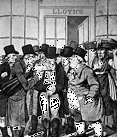 was taken over by Edward Lloyd's son in law, and then in later years, the trading inside the coffee house took on a life of it's own. By 1769 the first breakaway underwriters left to form New Lloyd's Coffee House in Pope's Head Alley. In 1771, 79 merchants, bankers, shipowners, brokers and underwriters subscribed with £100 each to create a building for all. In 1774 Lloyd's then moved to the Royal Exchange.
was taken over by Edward Lloyd's son in law, and then in later years, the trading inside the coffee house took on a life of it's own. By 1769 the first breakaway underwriters left to form New Lloyd's Coffee House in Pope's Head Alley. In 1771, 79 merchants, bankers, shipowners, brokers and underwriters subscribed with £100 each to create a building for all. In 1774 Lloyd's then moved to the Royal Exchange.
One can not hide from the fact that a major component of what occurred at Lloyd's was the insuring of vessels engaged in the Slave Trade. One can not just wish that such facts could disappear. That we of the 21st century can wish away the horridness of the Slave Trade, but having that in our history defines us now. Austen has the Bertram family receiving their income from slave plantations in the West Indies. They of course are not the only families to be so involved in the matter. English shipping carried 3 1/4 million people into slavery.
During the years that Lloyds was extant and Slaver trafficking was legal, British shipping lost over 1000 vessels.
With the advent of the Napoleonic wars, and shipping so much at risk, a close synergy was created between the business interests and the Admiralty. Even to this day, the Lloyd's Patriotic Fund started in 1803 still functions and supports ex-servicepeople.
4,000,000
Just a few days ago, before the start of National Novel Writing Month, I passed another writing milestone. Four Million words written. There has been more than that. I don't keep track of the blogs, and it is possible that the blogs one day could become books. Nor do I keep track of the reviews, or other writings.
Four Million though for the novels that I have in the drawer as finished first drafts, second drafts, published, working on now.
That is over 13,300 pages of material. It's a lot. Stack up nearly 3 boxes of copier paper. 500 sheets to a ream, 10 reams to a box, so 26 reams of finished work that I have been keeping track of. There are other buried bones in the closet that could contribute to my word count but have not.
Sales October
Down from September, which is hard. I had hoped for sales growth every month, instead of the other way around. 86 books which is slightly over 50% of the month before. One series of 6 Colonel Fitzwilliams and a Shattered Mirror went to a bookshop (can't tell which one though) and another bookshop (maybe the same one) has bought a series in November as well. Kindle to Physical was 31% so I definitely see a trend there.
Overall, 13% of the goal we want in sales to become a full time writer. Of course the goal is the minimum needed to support us. I am sure Cheryl would like the revenue to be a little better than minimum so we could travel. Buy Christmas presents, that sort of thing.
Good Review
I love getting good reviews, especially when I am in the doldrums and I did garner another 5 star review (my favorite kind) Next to those, I like those that end with "would recommend." Those are always valuable. I have a few now for Colonel Fitzwilliam's Correspondence. I think those that read it, will be able to say the same. That they would recommend. I find that those who do not like what I have written are those who fault me for language. Aside from Austen and Heyer, there are few others that I have read for the period, but those that I have, write with a flair for setting the dialogue and narration with that period style. Some better than others. Those who have written with our present use of language are the ones I personally don't read or recommend. So I suppose when a reader faults me for not writing with a contemporary use of language, I have written a Regency that does not appeal to them, just as I fault those writers who can't find their way to use the rich Regency Lexicon available to us.
This year, I am once again writing a Regency. It is tentatively called The Other Shoe, as mentioned above. I completed the competitions 50,000 word requirement in 9 days. And having written several Novella length pieces this year, I can see that we can call 50,000 words a book. But my full length books are always well over 90,000 words and even 100,000. The big ones are over 200,000.
So The Other Shoe, at 50,504 words, has just reached the middle of Chapter 8, and in a 15 chapter book at present, that would be the middle of the story. Where our heroine (Lady Barbara Winhampton, the daughter of the Earl of Tyrone) is unburdening her soul saying how she just hates the hero. Though she doesn't say how the hero has stirred thoughts in her that she had not known she had.
I scanned the list of Earldoms, for a defunct one to give to our heroine's father. Tyrone was the first I saw that seemed to be useful, but it was a subconscious choice that guided me to it. There is a 1936 (wow-75 years old) movie called Lloyd's of London. I like the movie, and it ends during the Regency with the news of Trafalgar a key part of the story. It is one of my influences and as I plotted the story a few days ago, I remembered the movie and put in a needed plot device for both Hero and Heroine's family need to find some quick wealth. Wealth that could be gotten by investing as the star of the movie, Tyrone Power did. This fact came to me on Tuesday this week, when I had passed the first third of the novel.
I like the movie, and it ends during the Regency with the news of Trafalgar a key part of the story. It is one of my influences and as I plotted the story a few days ago, I remembered the movie and put in a needed plot device for both Hero and Heroine's family need to find some quick wealth. Wealth that could be gotten by investing as the star of the movie, Tyrone Power did. This fact came to me on Tuesday this week, when I had passed the first third of the novel.
Over the course of the last few months, I have become a reviewer at Inside Mac Games. I am now working on my third review for them. My previous two involve the game AI:Wars, which was actually pretty bad the more I think on it, and the Map bundle from Civilization V,  (picture from actual gameplay I did for the review) which I have mentioned before is a great game.
(picture from actual gameplay I did for the review) which I have mentioned before is a great game.
IMO
I have decided, as a matter of preference, that now, almost 50, I do not have to be humbled by my opinions any longer. IMHO is out!!! My Opinions are mine, and I intend to drop the H. And that is my opinion, 








November Starts and NaNoWriMo 2011
New Format
I have recently been invited to a Blog Tribe, the concept of which I am still a little sketchy on, but the idea is 6 other writers who explore the same periods as I get together and as we create our wonderful erudite web logs full of historical information, we share it.
The writers are Debra Brown, Teresa Thomas Bohannon, Maria Grazia, John D. Aidan, Lauren Gilbert and Emily Snyder
This new venture for me then leads me to redesign how I report in Things That Catch My Eye. Instead of just a Writer's Blog where I report on the success and failure of my writing life. Write up my Gratitude Log. Provide excerpts of my writing, I will also write notes on my historical research for the books I am working on. And as they should carry more weight, I will place them first in the blog, with the notes of what I have been doing as a writer following.
This month is NaNoWriMo, and so I am at work on a Regency. The Other Shoe. It has led to research on Lloyds of London for today and the Royal Exchange for next time.
Lloyds of London
Starting in Edward Lloyd's coffee house in 1688 on Tower Street, it was not the site of commercial interaction at first, but as more members of the shipping trade gathered there, ship's captains, merchants, and owners, it evolved to a place where marine insurance could be financed. So successful that by 1691 Mr. Lloyd was able to move to a larger premise at the corner of Lombard Street and Abchurch Lane. Lloyd also began to employ correspondents at the main ports in England and abroad to get factual news quickly.
The motivation for Lloyd's to grow beyond a place where like minded businessmen would gather to talk was the need to protect individual owners from the possibility of catastrophic losses. Underwriters would subscribe and assure that should a vessel be lost, they would then pay for it's loss. They though would receive rewards for agreeing to such risks. Thus insurance as we know it was born, and Lloyd's is now the leading specialist insurance market.
The coffee house 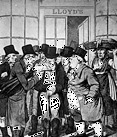 was taken over by Edward Lloyd's son in law, and then in later years, the trading inside the coffee house took on a life of it's own. By 1769 the first breakaway underwriters left to form New Lloyd's Coffee House in Pope's Head Alley. In 1771, 79 merchants, bankers, shipowners, brokers and underwriters subscribed with £100 each to create a building for all. In 1774 Lloyd's then moved to the Royal Exchange.
was taken over by Edward Lloyd's son in law, and then in later years, the trading inside the coffee house took on a life of it's own. By 1769 the first breakaway underwriters left to form New Lloyd's Coffee House in Pope's Head Alley. In 1771, 79 merchants, bankers, shipowners, brokers and underwriters subscribed with £100 each to create a building for all. In 1774 Lloyd's then moved to the Royal Exchange.
One can not hide from the fact that a major component of what occurred at Lloyd's was the insuring of vessels engaged in the Slave Trade. One can not just wish that such facts could disappear. That we of the 21st century can wish away the horridness of the Slave Trade, but having that in our history defines us now. Austen has the Bertram family receiving their income from slave plantations in the West Indies. They of course are not the only families to be so involved in the matter. English shipping carried 3 1/4 million people into slavery.
During the years that Lloyds was extant and Slaver trafficking was legal, British shipping lost over 1000 vessels.
With the advent of the Napoleonic wars, and shipping so much at risk, a close synergy was created between the business interests and the Admiralty. Even to this day, the Lloyd's Patriotic Fund started in 1803 still functions and supports ex-servicepeople.
4,000,000
Just a few days ago, before the start of National Novel Writing Month, I passed another writing milestone. Four Million words written. There has been more than that. I don't keep track of the blogs, and it is possible that the blogs one day could become books. Nor do I keep track of the reviews, or other writings.
Four Million though for the novels that I have in the drawer as finished first drafts, second drafts, published, working on now.
That is over 13,300 pages of material. It's a lot. Stack up nearly 3 boxes of copier paper. 500 sheets to a ream, 10 reams to a box, so 26 reams of finished work that I have been keeping track of. There are other buried bones in the closet that could contribute to my word count but have not.
Sales October
Down from September, which is hard. I had hoped for sales growth every month, instead of the other way around. 86 books which is slightly over 50% of the month before. One series of 6 Colonel Fitzwilliams and a Shattered Mirror went to a bookshop (can't tell which one though) and another bookshop (maybe the same one) has bought a series in November as well. Kindle to Physical was 31% so I definitely see a trend there.
Overall, 13% of the goal we want in sales to become a full time writer. Of course the goal is the minimum needed to support us. I am sure Cheryl would like the revenue to be a little better than minimum so we could travel. Buy Christmas presents, that sort of thing.
Good Review
I love getting good reviews, especially when I am in the doldrums and I did garner another 5 star review (my favorite kind) Next to those, I like those that end with "would recommend." Those are always valuable. I have a few now for Colonel Fitzwilliam's Correspondence. I think those that read it, will be able to say the same. That they would recommend. I find that those who do not like what I have written are those who fault me for language. Aside from Austen and Heyer, there are few others that I have read for the period, but those that I have, write with a flair for setting the dialogue and narration with that period style. Some better than others. Those who have written with our present use of language are the ones I personally don't read or recommend. So I suppose when a reader faults me for not writing with a contemporary use of language, I have written a Regency that does not appeal to them, just as I fault those writers who can't find their way to use the rich Regency Lexicon available to us.
This year, I am once again writing a Regency. It is tentatively called The Other Shoe, as mentioned above. I completed the competitions 50,000 word requirement in 9 days. And having written several Novella length pieces this year, I can see that we can call 50,000 words a book. But my full length books are always well over 90,000 words and even 100,000. The big ones are over 200,000.
So The Other Shoe, at 50,504 words, has just reached the middle of Chapter 8, and in a 15 chapter book at present, that would be the middle of the story. Where our heroine (Lady Barbara Winhampton, the daughter of the Earl of Tyrone) is unburdening her soul saying how she just hates the hero. Though she doesn't say how the hero has stirred thoughts in her that she had not known she had.
I scanned the list of Earldoms, for a defunct one to give to our heroine's father. Tyrone was the first I saw that seemed to be useful, but it was a subconscious choice that guided me to it. There is a 1936 (wow-75 years old) movie called Lloyd's of London. I like the movie, and it ends during the Regency with the news of Trafalgar a key part of the story. It is one of my influences and as I plotted the story a few days ago, I remembered the movie and put in a needed plot device for both Hero and Heroine's family need to find some quick wealth. Wealth that could be gotten by investing as the star of the movie, Tyrone Power did. This fact came to me on Tuesday this week, when I had passed the first third of the novel.
I like the movie, and it ends during the Regency with the news of Trafalgar a key part of the story. It is one of my influences and as I plotted the story a few days ago, I remembered the movie and put in a needed plot device for both Hero and Heroine's family need to find some quick wealth. Wealth that could be gotten by investing as the star of the movie, Tyrone Power did. This fact came to me on Tuesday this week, when I had passed the first third of the novel.
Over the course of the last few months, I have become a reviewer at Inside Mac Games. I am now working on my third review for them. My previous two involve the game AI:Wars, which was actually pretty bad the more I think on it, and the Map bundle from Civilization V,  (picture from actual gameplay I did for the review) which I have mentioned before is a great game.
(picture from actual gameplay I did for the review) which I have mentioned before is a great game.
IMO
I have decided, as a matter of preference, that now, almost 50, I do not have to be humbled by my opinions any longer. IMHO is out!!! My Opinions are mine, and I intend to drop the H. And that is my opinion, 









